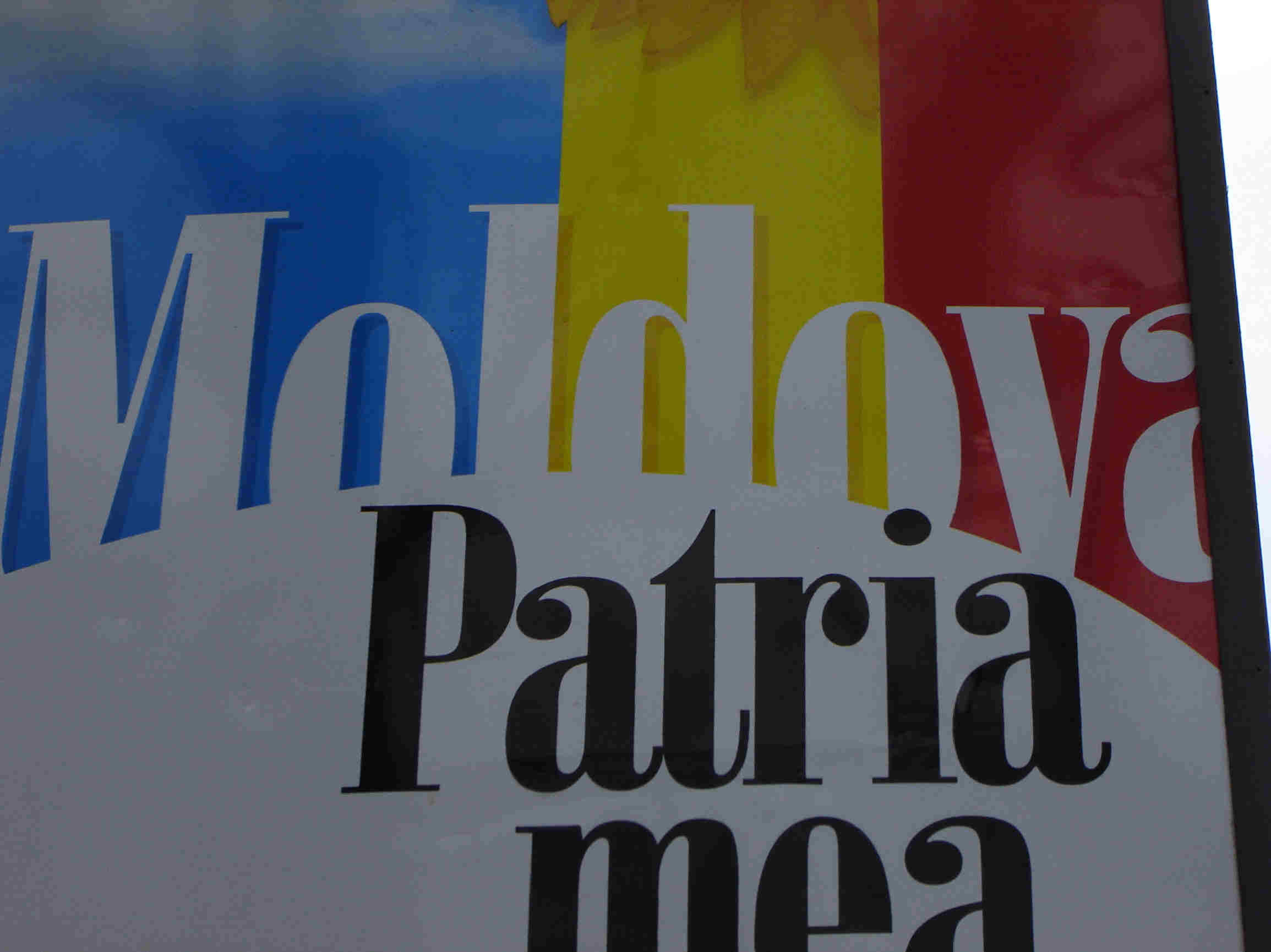7 May...The "Real" Village People...I
have been truly fortunate over the last three weeks to have been invited
into Moldovan several homes over the school breaks. First, my friend and
colleague, Irina Nicorich invited me to her home town for Easter dinner
and then I
accepted three invitations from students to their homes to meet their
families and see where they grew up. I always learn so much about
my students back home when I get that rare glimpse into their "native"
environments and meet their parents and the same is true of my Moldovan
students.
I do need to explain the difference between a town (like where Irina is
from) and a village (like where my students are from). A town is
distinguished from a village by having modern conveniences such as electricity, gas, running water, paved streets,
and apartment blocks. A village will not have all of these
conveniences--in fact it may have none. Plumbing for a family living in a village is always
an outhouse (sometimes people do not have indoor plumbing in towns and
cities, as well). It is also quite common to see a horse drawn
cart in a village but not in a town or a city.
For centuries, villages have existed in much the same way in what is today Moldova with
villagers farming the surrounding lands. Everyone in
the village raises their own food. Chickens, geese, and pigs are
common for protein
sources (fish if there is a stream or river nearby). To
round out the diet, villagers plant potatoes, corn, tomatoes, cucumbers, peppers and other
vegetables as well as locally grown fruits and nuts. Meals are
hearty and chicken seems to be the centerpiece in my village meals.
Candy and bread seem to be the only
food staples that
villagers regularly purchase in stores.
Life in the villages was greatly disrupted during Soviet times,
especially under Stalin (1924-53). Stalin greatly feared the
ability farmers had to disrupt the food supply and under him,
collectivization was accelerated. Meaning that private farms were
taken by the state and rather than being farmed by landowners, the state
appointed managers to direct the production. Villagers were left
with small plots of land that they could use for their own purpose but
most were forced to work on the collective farm.
Today, collective
farming has been abandoned and the former facilities are ramshackle and
litter the countryside. Most have been ransacked for whatever
materials could be carried off and used in a nearby village.
Farmers, themselves, were ill-equipped for the transition to the market
economy and a fair portion of Moldova's very rich soil has been either
unused or underutilized since the end of collective farming. One
person working in agriculture aptly summed it up by saying that Moldovan
farmers are very good farmers but have not always been good
businesspeople. Corporate farming is entering local village life
and many young people from the village are moving to the city--or away
from the country.
Of the three students whose homes I visited, all
have ambitions that could take them away from their villages but each
has a deep commitment to Moldova. Vicu wants to be a politician
and he would be a good one--there was never a baby unkissed when Vicu
was around. He will be working on a farm in Great Britain this
summer so he can save money for his tuition next year. Silvia, who
is a bundle of energy, wants to be a diplomat and I can see it.
She will be working in New Jersey this summer to save money for school
and maybe a graduate degree. Costia has more of an interest in
returning to his village--maybe as a mayor. He also will be
spending the summer in Florida this year and will be saving his money to
buy a car and put a new roof on his parents' house. Changes will
need to come to Moldova if it is to harness the vibrancy, energy, and
ambition of its talented young people--I hope these changes come soon.
Since both Costia's and Vicu's villages are near the
Dnister River, both remember the war of 1992 when missiles flew over
their boyhood homes and tanks could be seen in nearby fields. As I
was leaving Costia's village, I saw UN peacekeeping forces just down the
road where Transnestria begins to exercise authority. I have never
seen UN peacekeeping troops before! War is not new for villagers.
Moldova was at the center of conflict for generations with Turks,
Hungarians, Romanians, Russians, and Germans all vying for the land at
one time or another. Every village has a World War II monument
which commemorates both the victory of the Soviet Red Army over the
Nazis in 1944. The names of village boys that died as soldiers as
well as the names of soldiers from the Red Army that died fighting in
the surrounding area are listed on plaques. In most cases, there
are 20-30 names on the plaques--some soldiers were as young as 15.
Being able to visit the villages
and spend time with Moldovan families has been eye-opening and rewarding
all at the same time. One of my hosts remarked to me, " we have
had foreigners visit the village before, but only at rich people's
houses, I never thought a foreigner would come to a peasant's house like
mine." I feel so privileged to have been able to have been that
foreigner. That does not mean that I find village life to be easy
or that I think I would be successful in it--only that I feel so
privileged to see a world that while only a few miles from my
comfortable apartment in Chisinau, seems so far away.
Altogether, my
visits in the villages have taught me a great deal about Moldova--its
strengths and challenges. I have also learned to be more grateful
for the comfortable and safe childhood that I enjoyed in America.
Sometimes it takes a village to teach you a lesson or two...
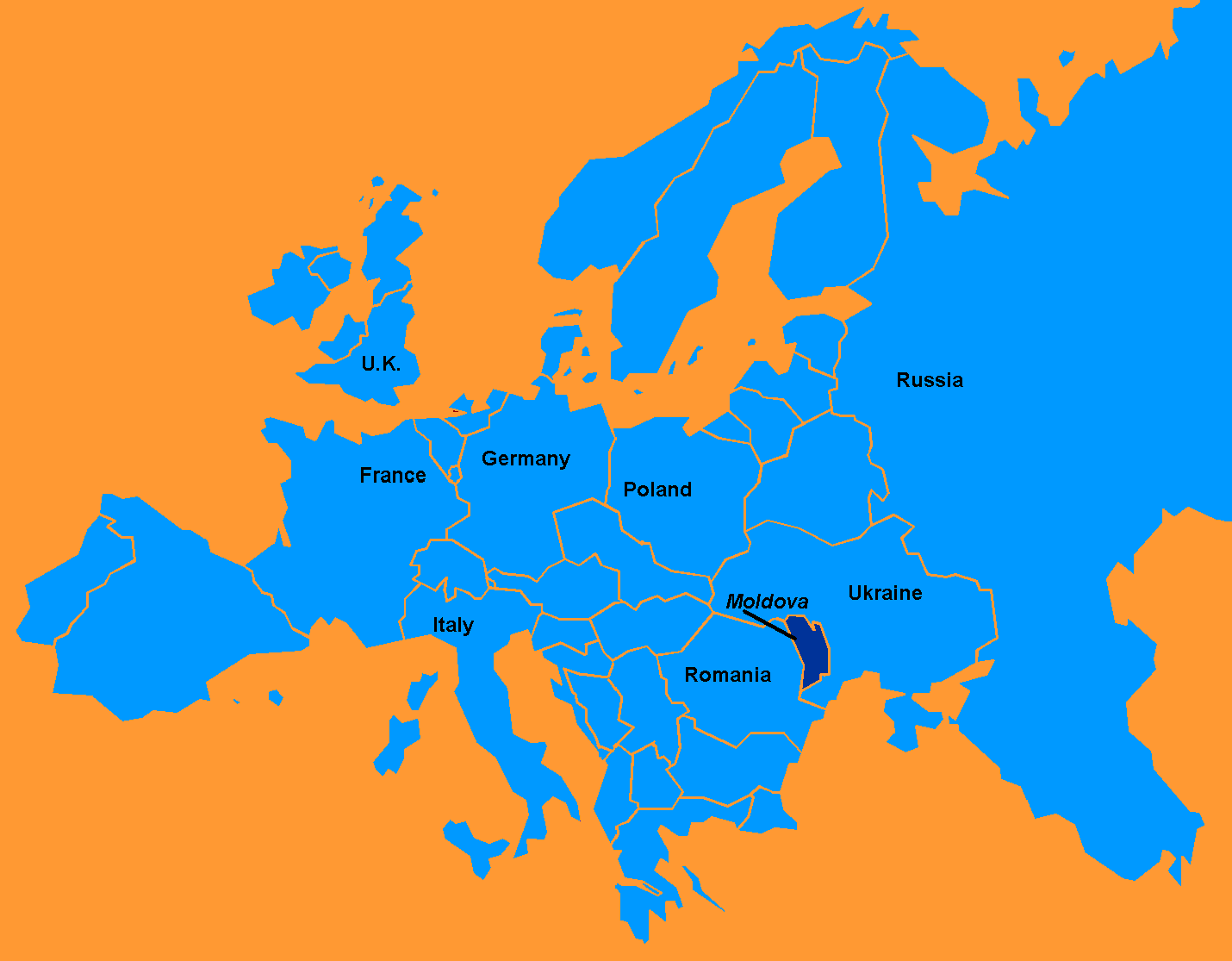
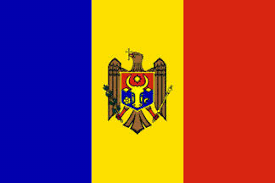
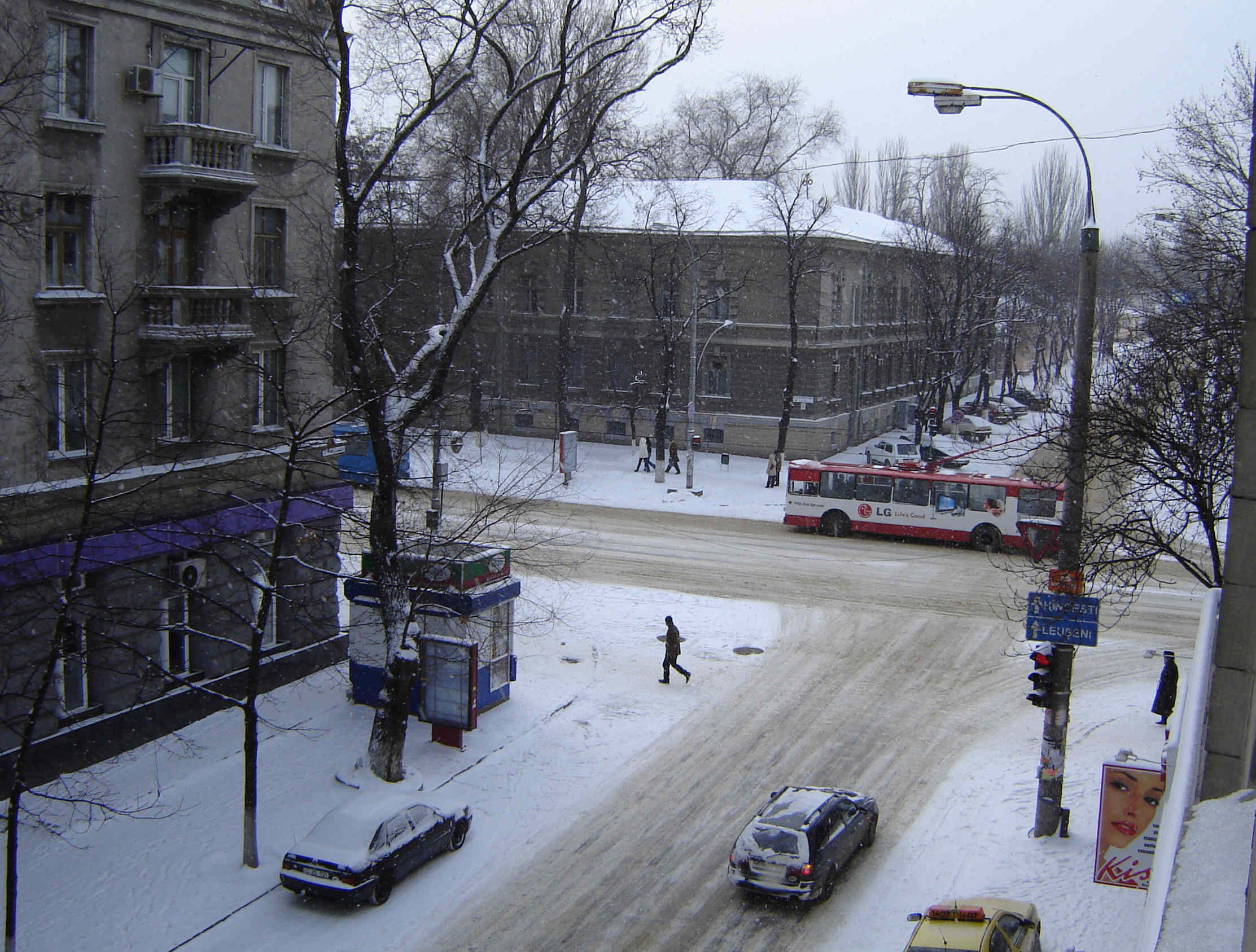
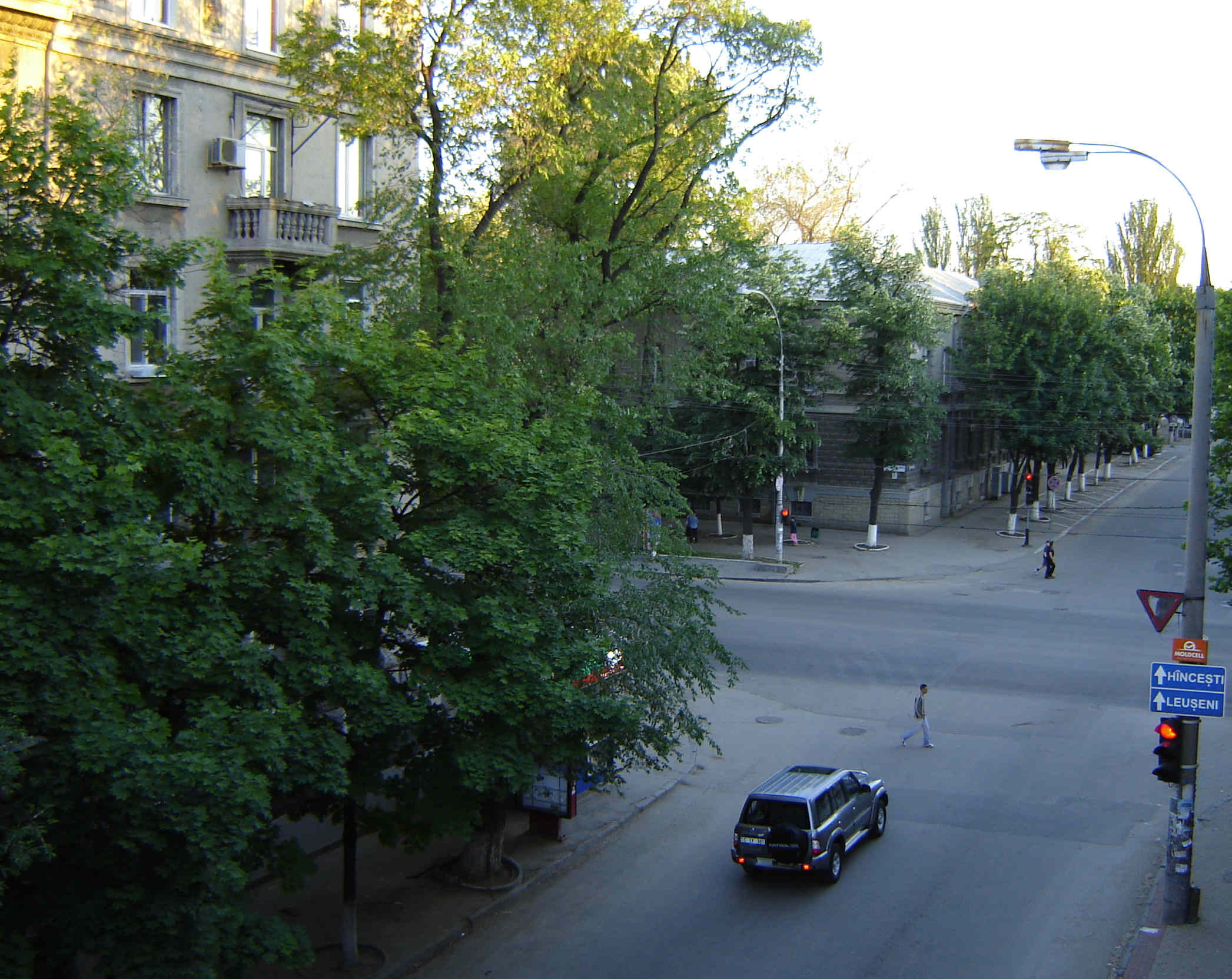
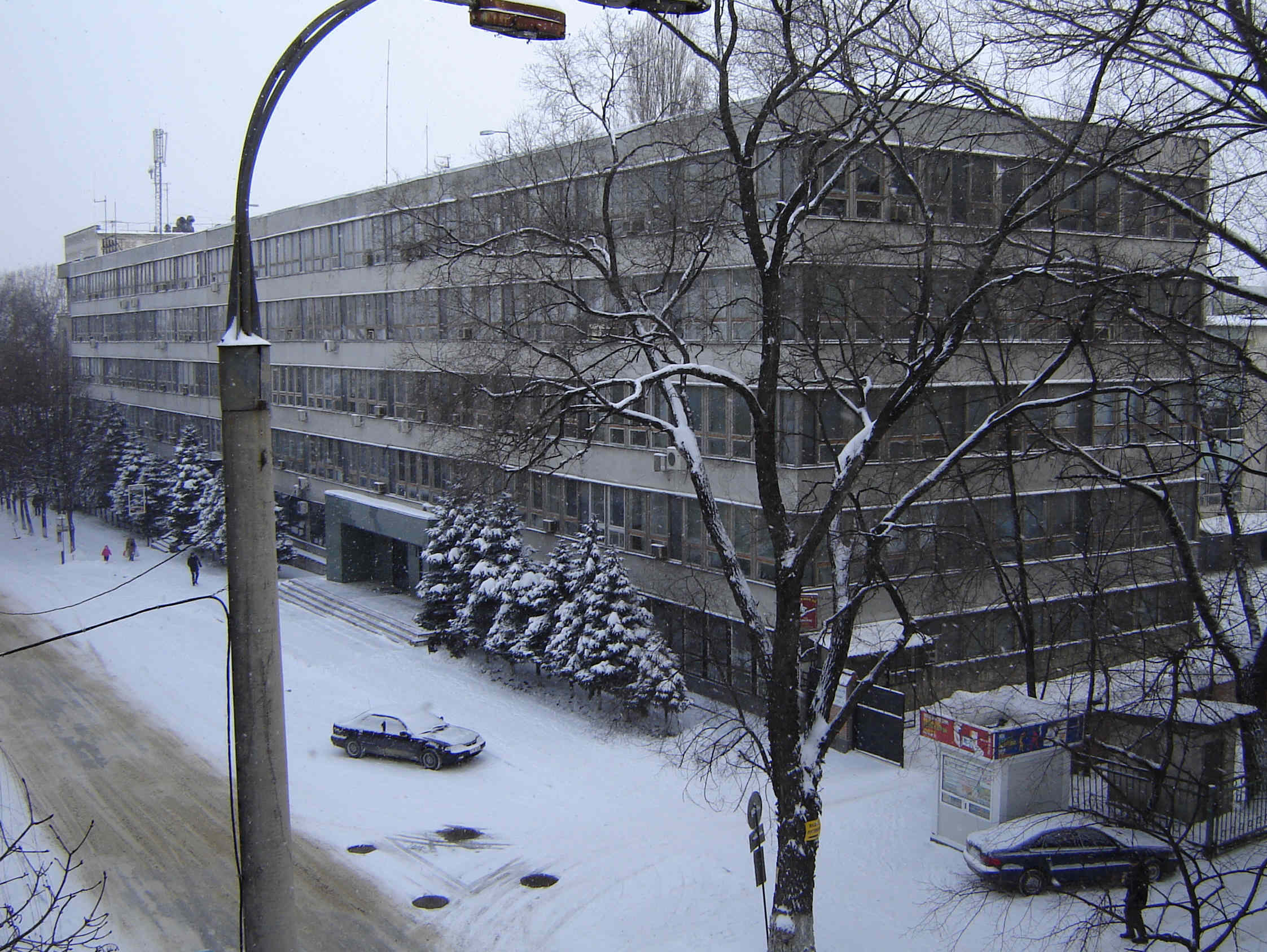
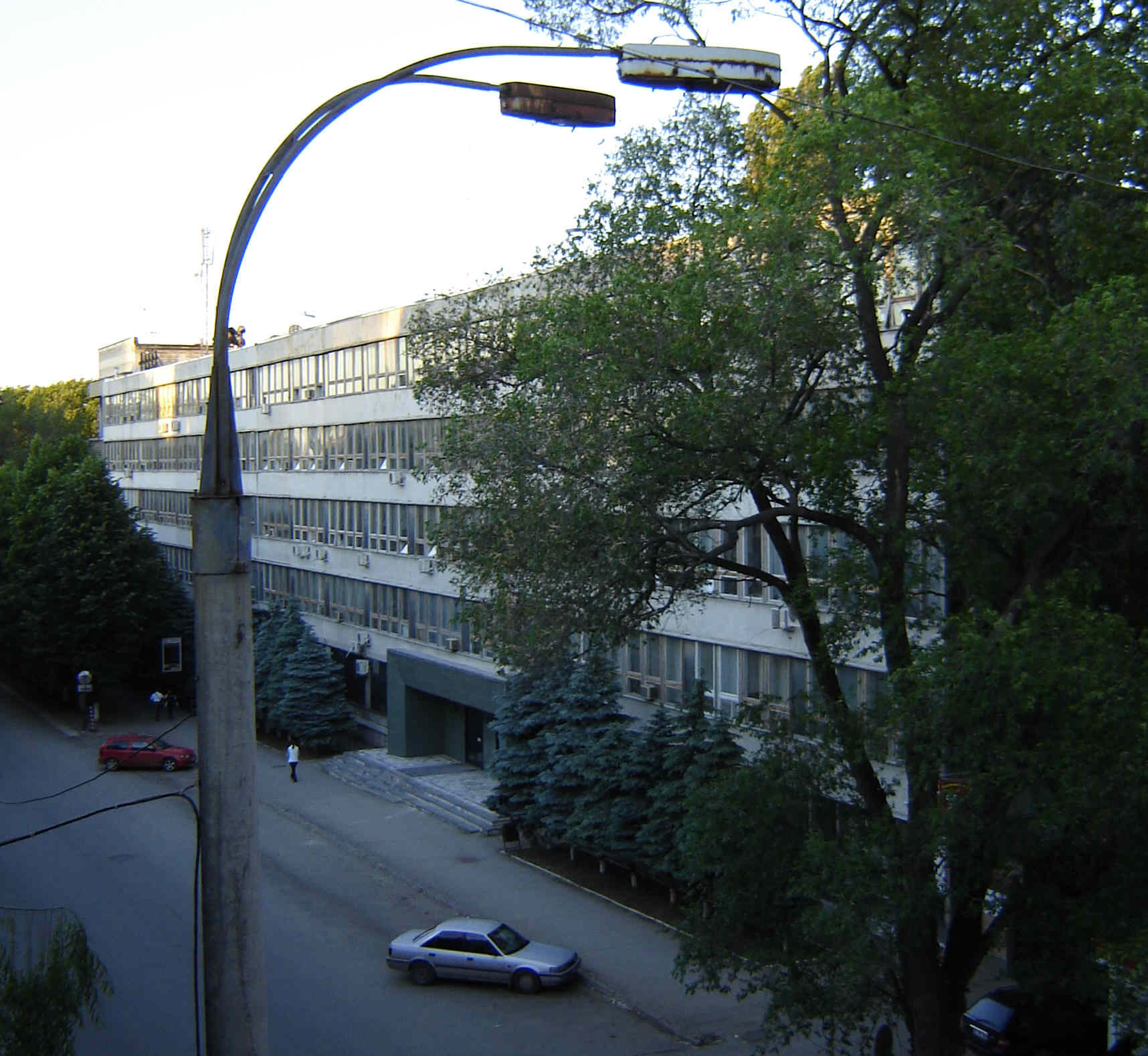
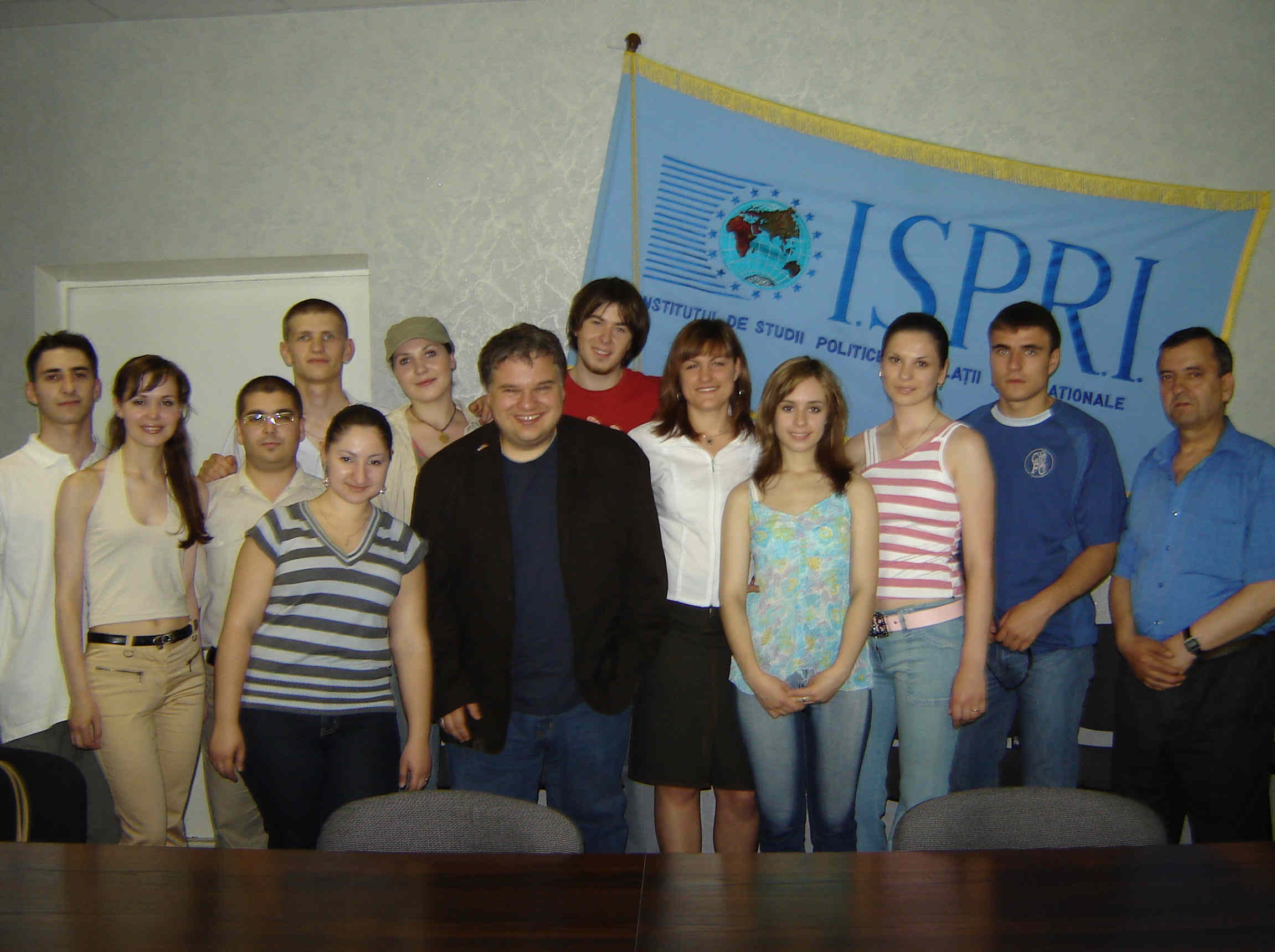 ISPRI Students (l to r: Denis, Alionia, Nicolae, Valeriu, Vlada,
Natalia,me, Artiom, Natasha, Cristina, Doina, Sasha, and my colleague
Dmn. Vazare) just after their exam
ISPRI Students (l to r: Denis, Alionia, Nicolae, Valeriu, Vlada,
Natalia,me, Artiom, Natasha, Cristina, Doina, Sasha, and my colleague
Dmn. Vazare) just after their exam 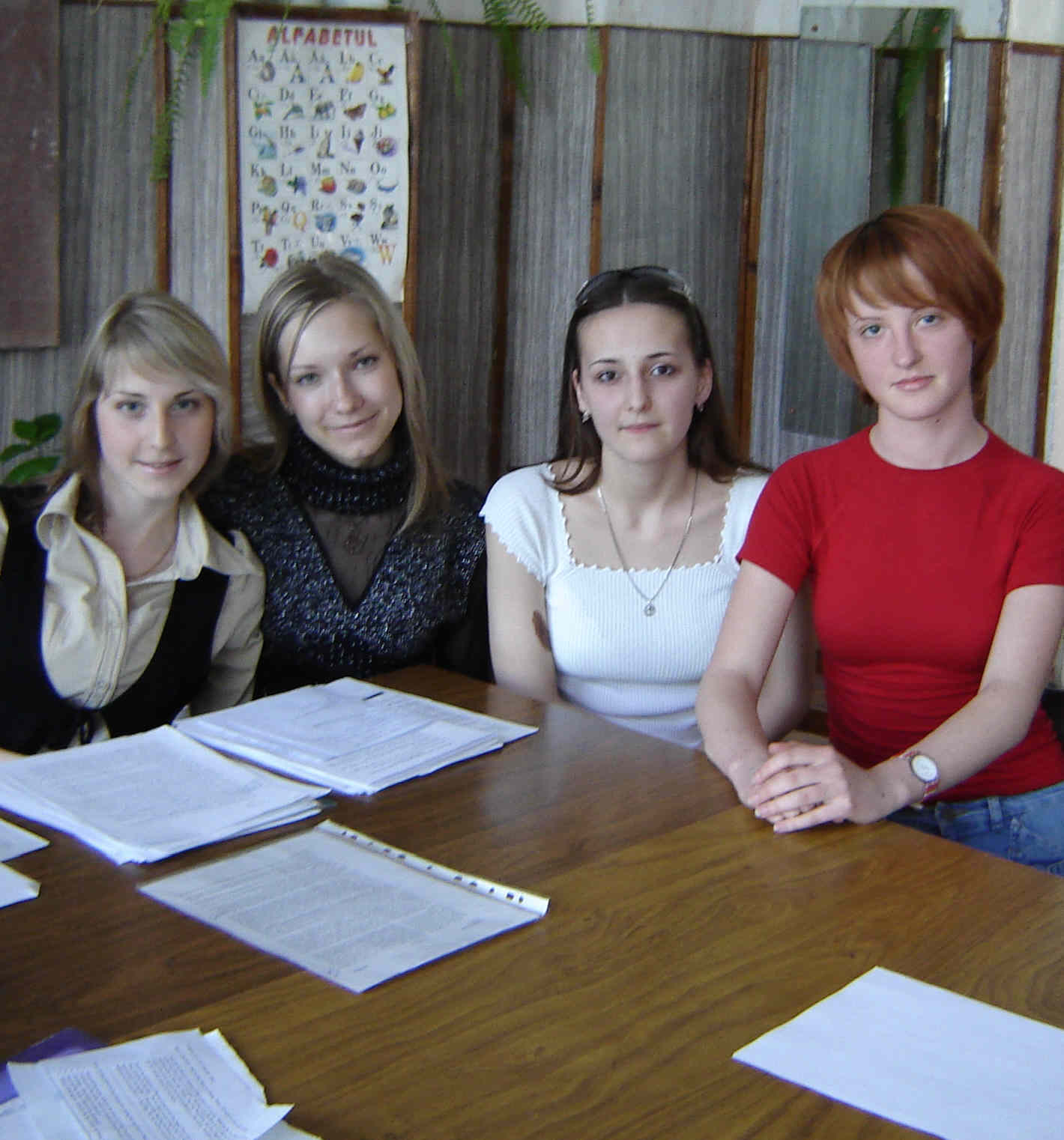
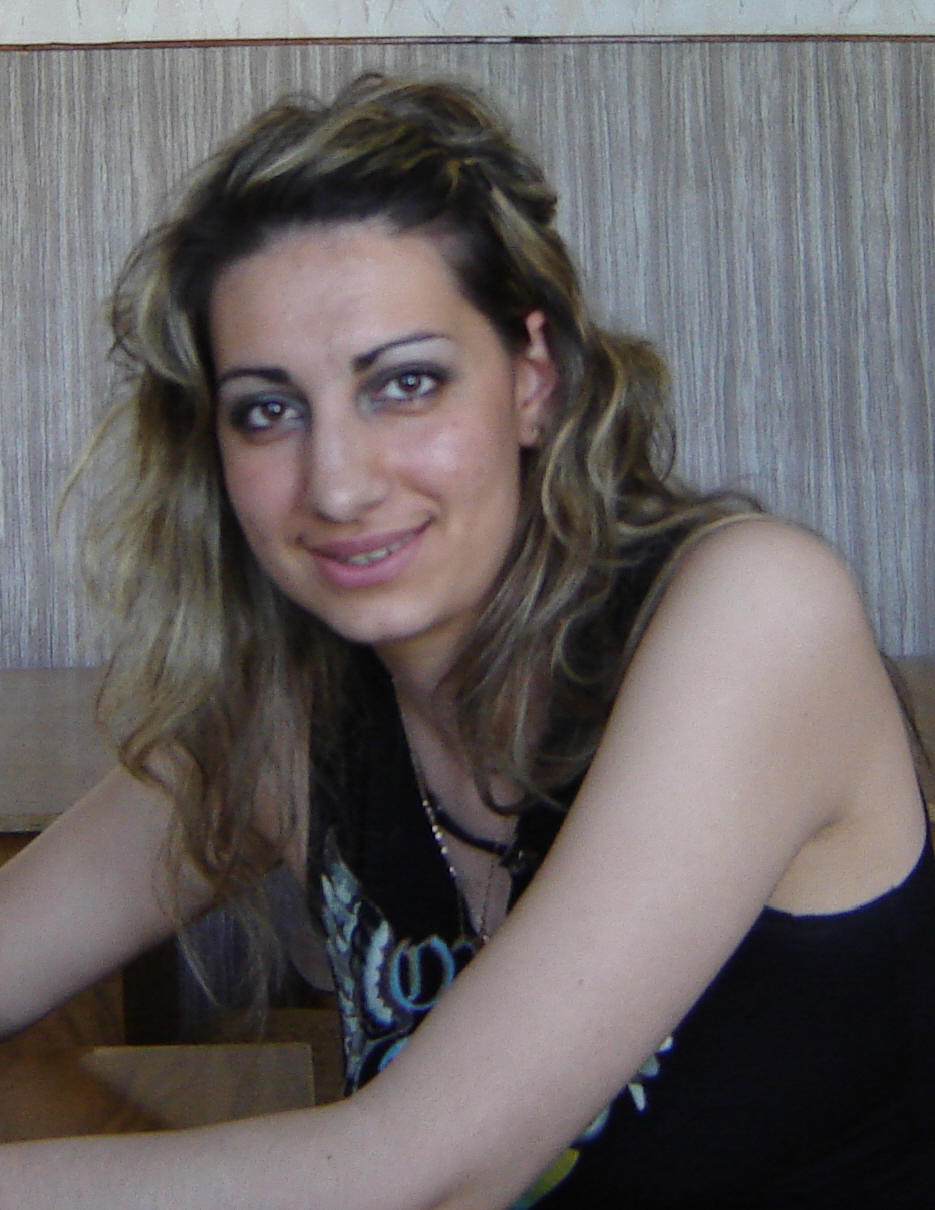
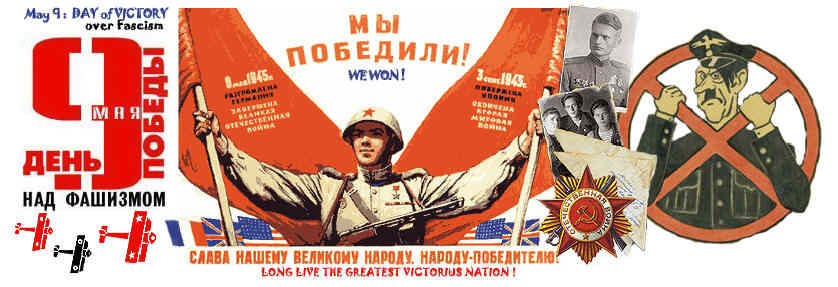 A montage of May 9th celebration themes. May 9 is the day the
former Soviet Union celebrates the end of WWII and on the right a
retired Soviet Mig jet that is now housed in a park in Chisinau.
A montage of May 9th celebration themes. May 9 is the day the
former Soviet Union celebrates the end of WWII and on the right a
retired Soviet Mig jet that is now housed in a park in Chisinau.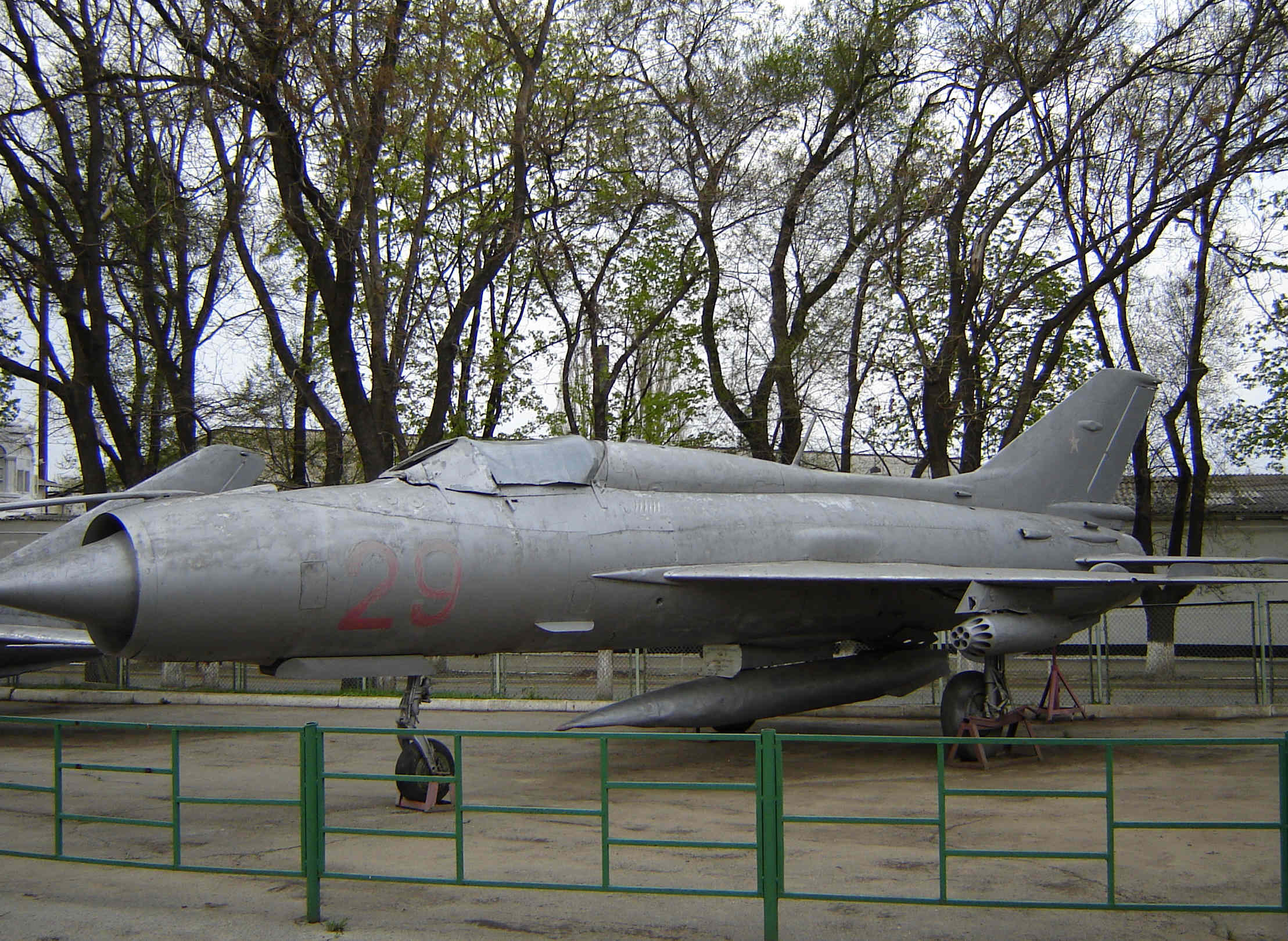
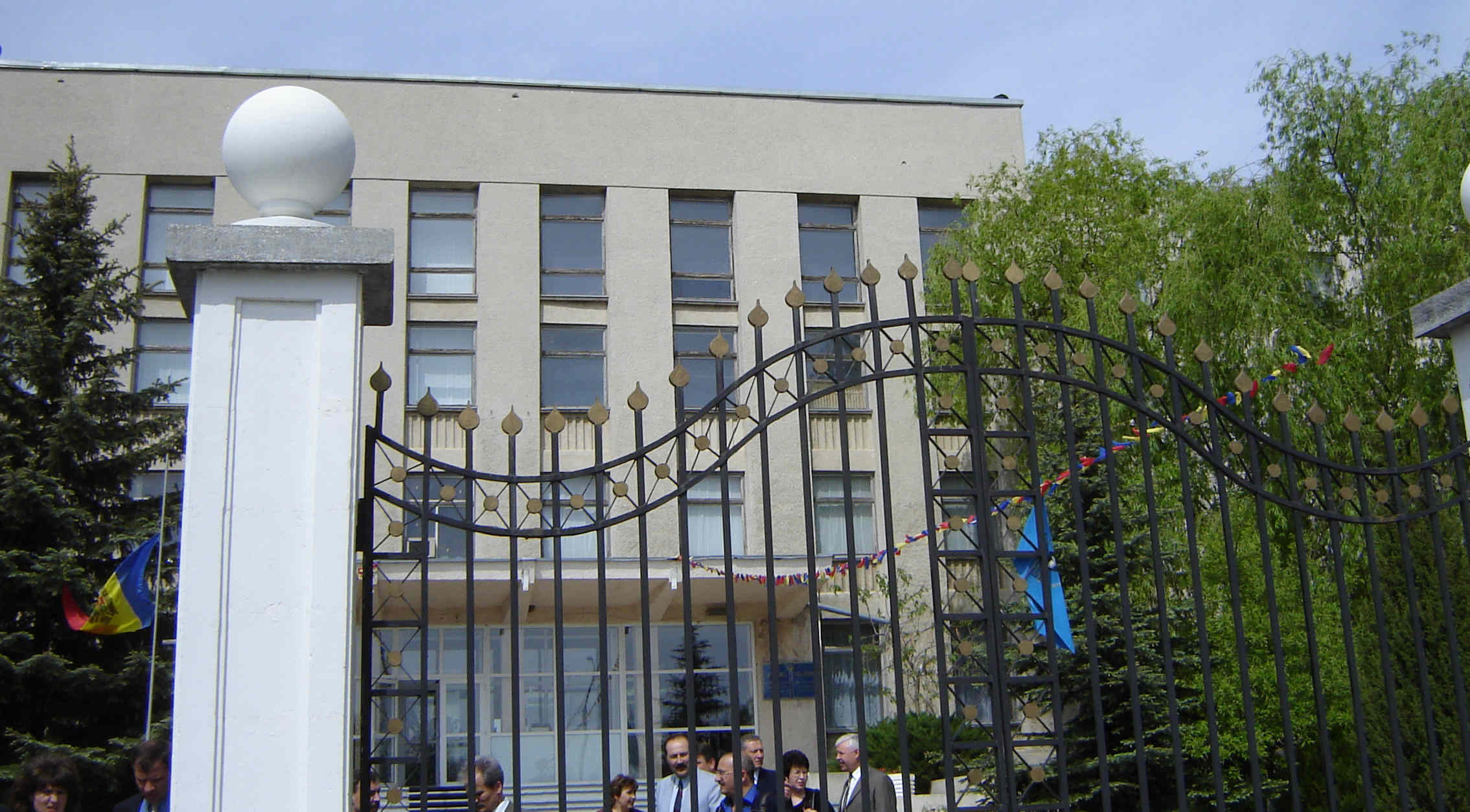 The gates to the Academy of Public Administration of the Office of the
President of Moldova.
The gates to the Academy of Public Administration of the Office of the
President of Moldova.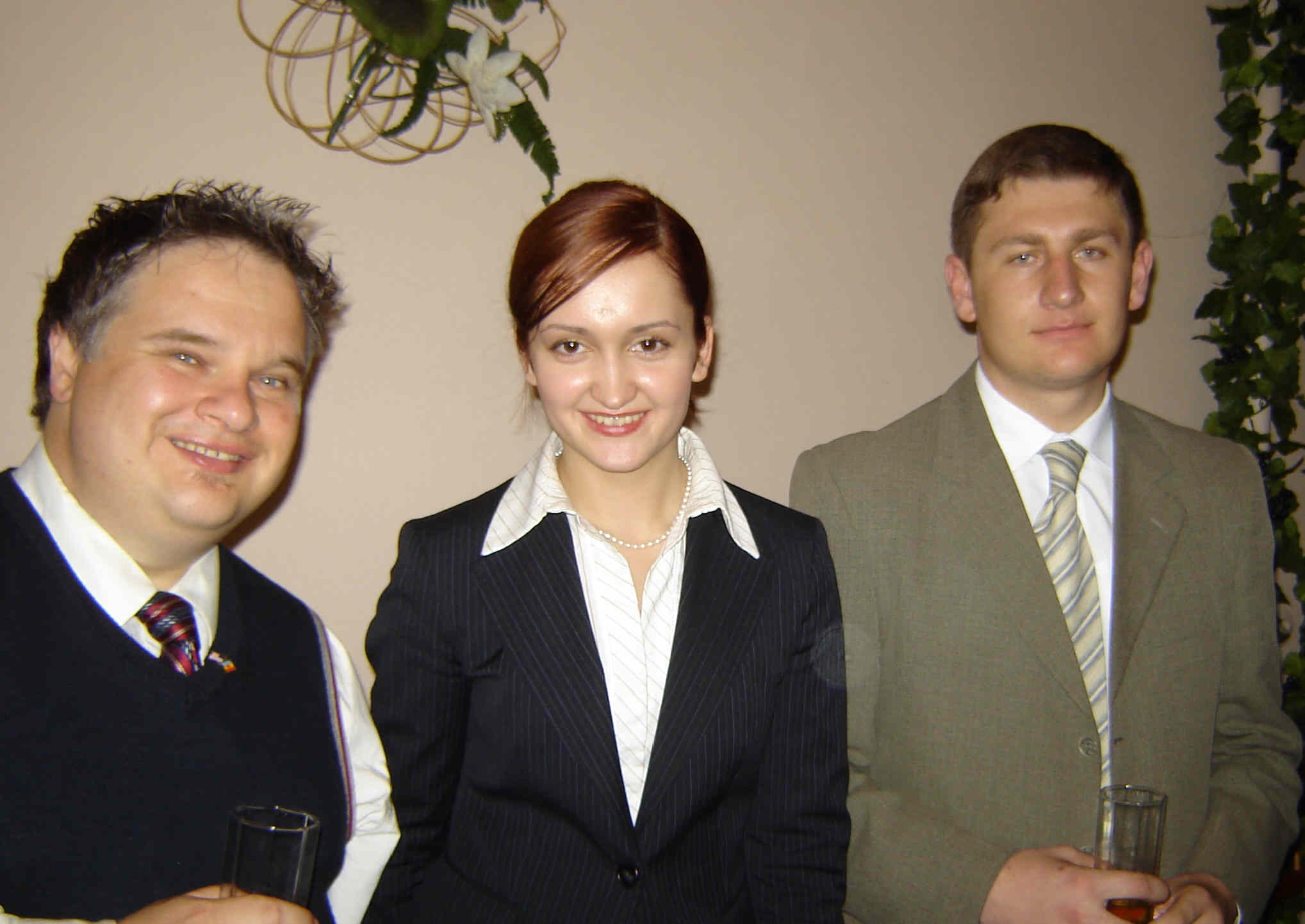 Me with Christina and Sergiu my interpreters at the Academy of Public
Administration.
Me with Christina and Sergiu my interpreters at the Academy of Public
Administration.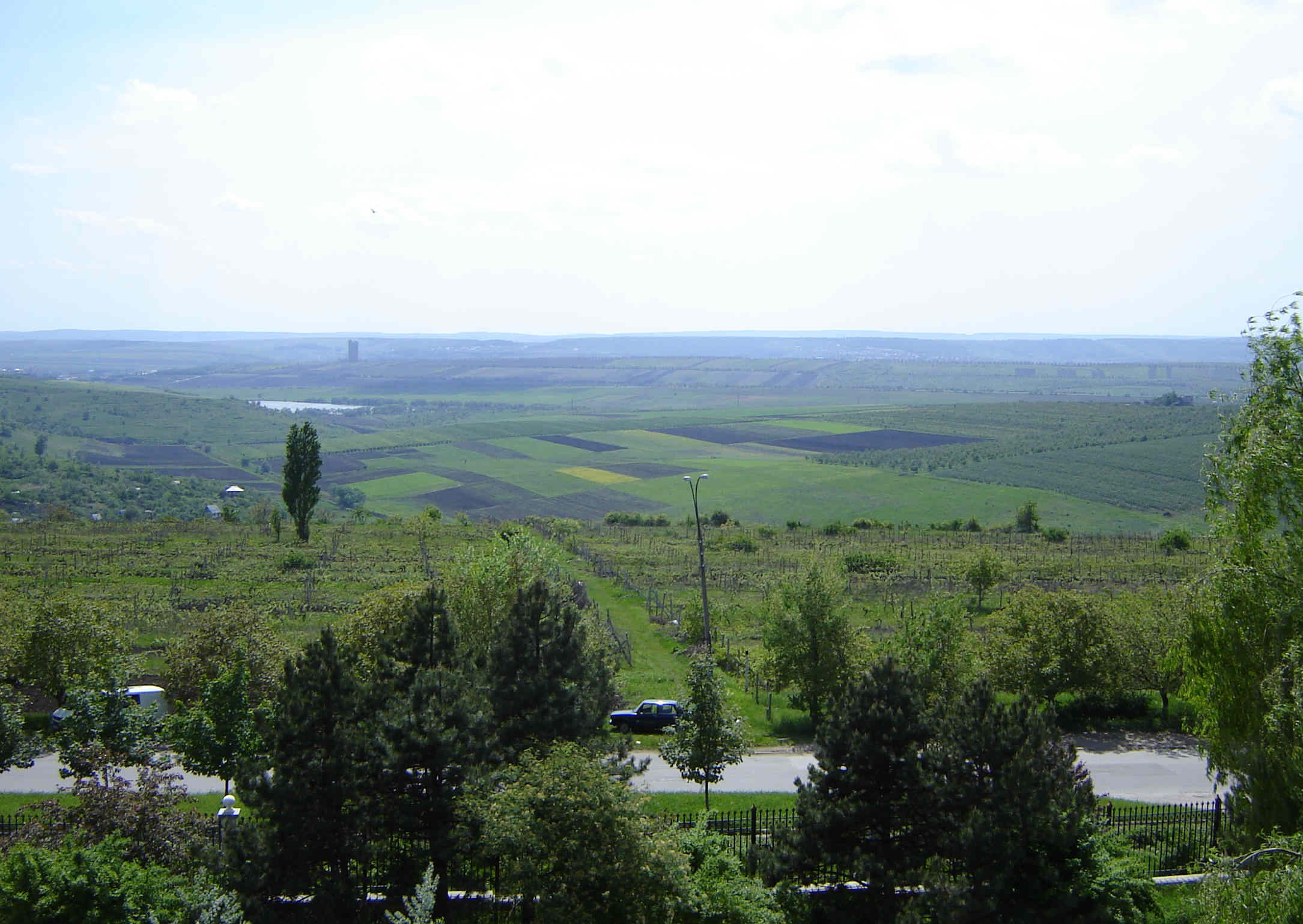 View of the fields from the Academy of
Public Administration.
View of the fields from the Academy of
Public Administration.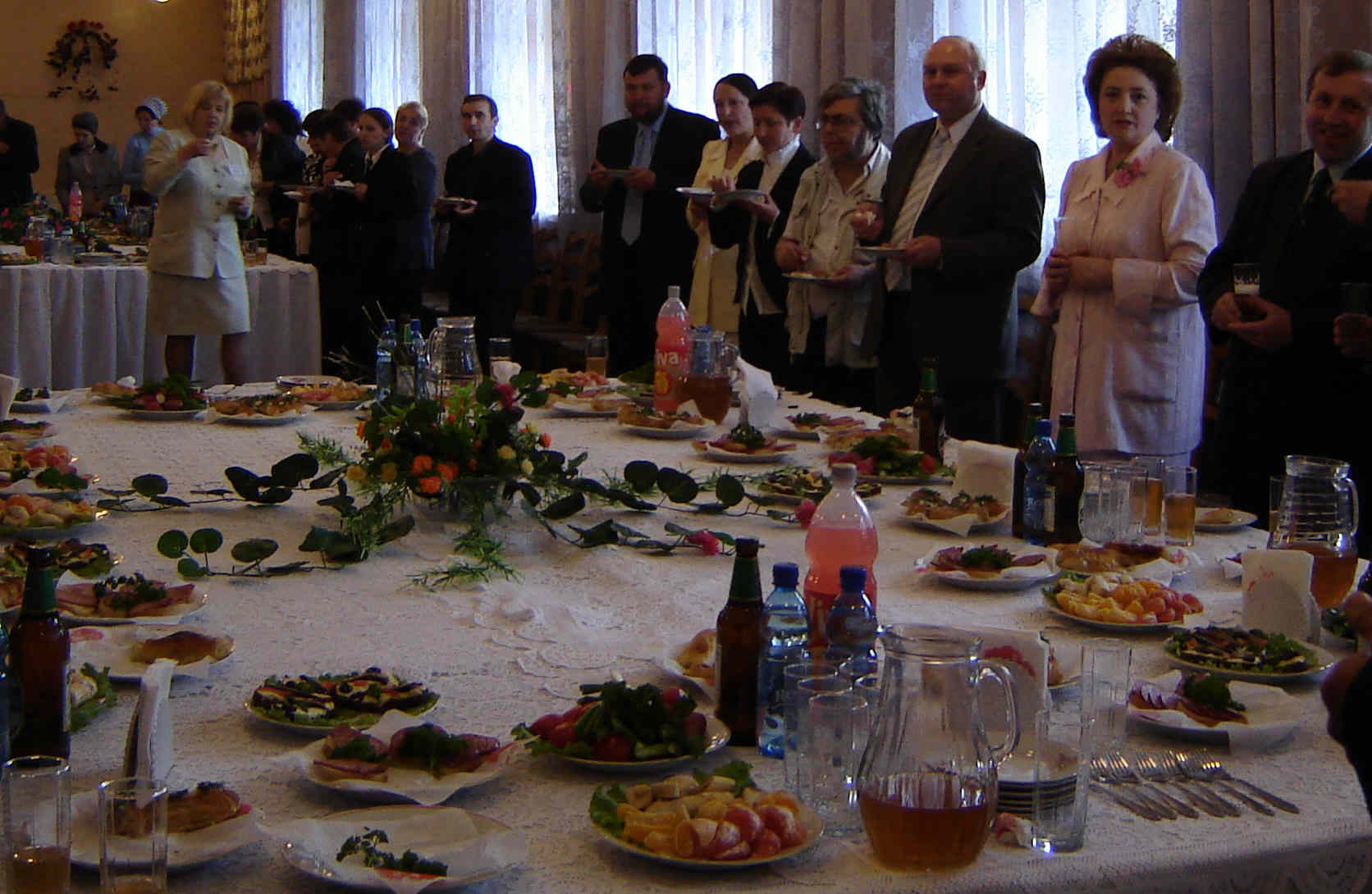 The rector (woman in pink) of
the Academy of Public Administration leads toasts celebrating the
13th anniversary of the Academy.
The rector (woman in pink) of
the Academy of Public Administration leads toasts celebrating the
13th anniversary of the Academy.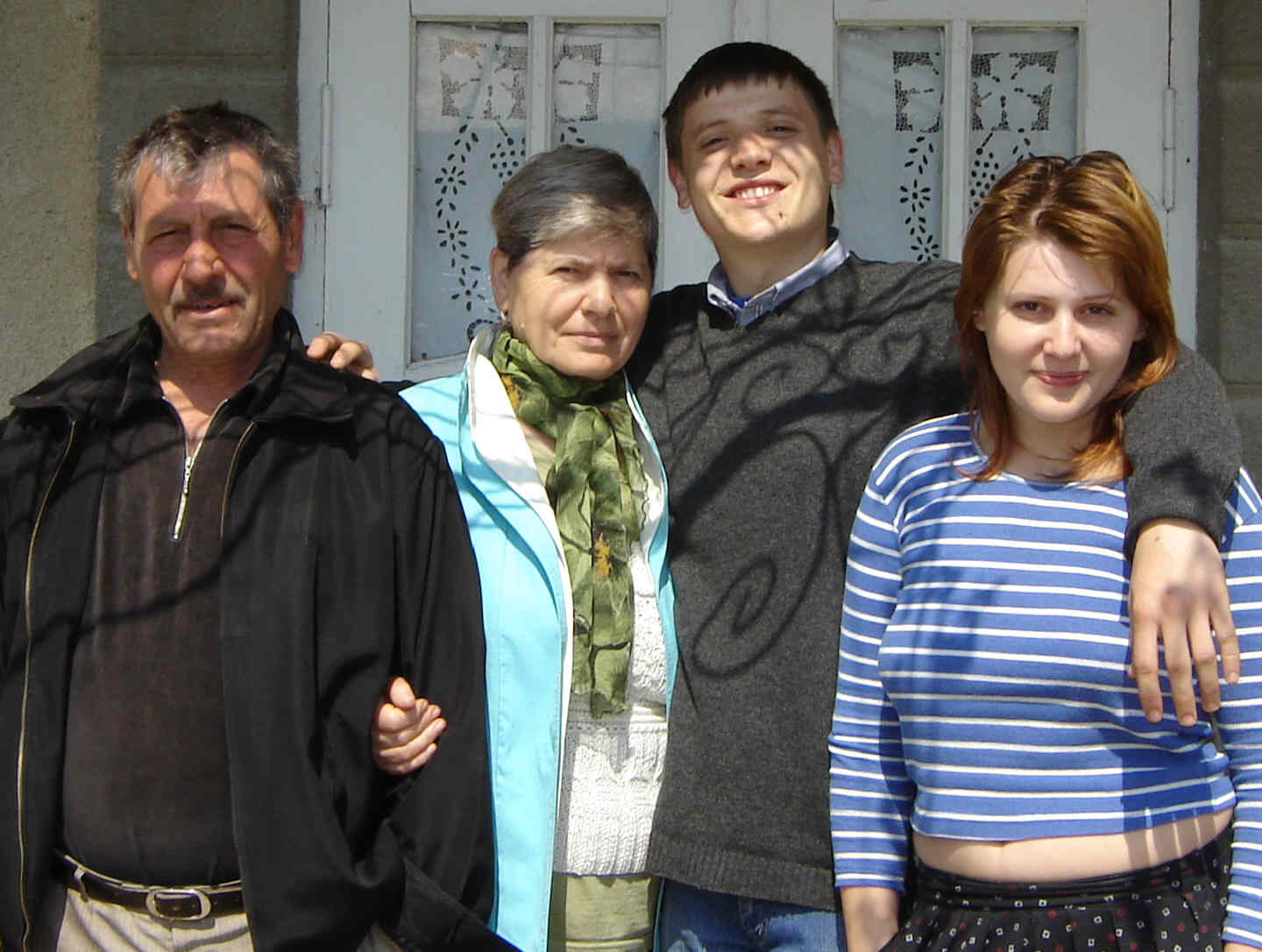 Victor (Vicu at home) with his mother
and father and his sister, Natasha. Vicu is a natural politician
and I hope that he will go far. His Mom is the village medical
doctor.
Victor (Vicu at home) with his mother
and father and his sister, Natasha. Vicu is a natural politician
and I hope that he will go far. His Mom is the village medical
doctor.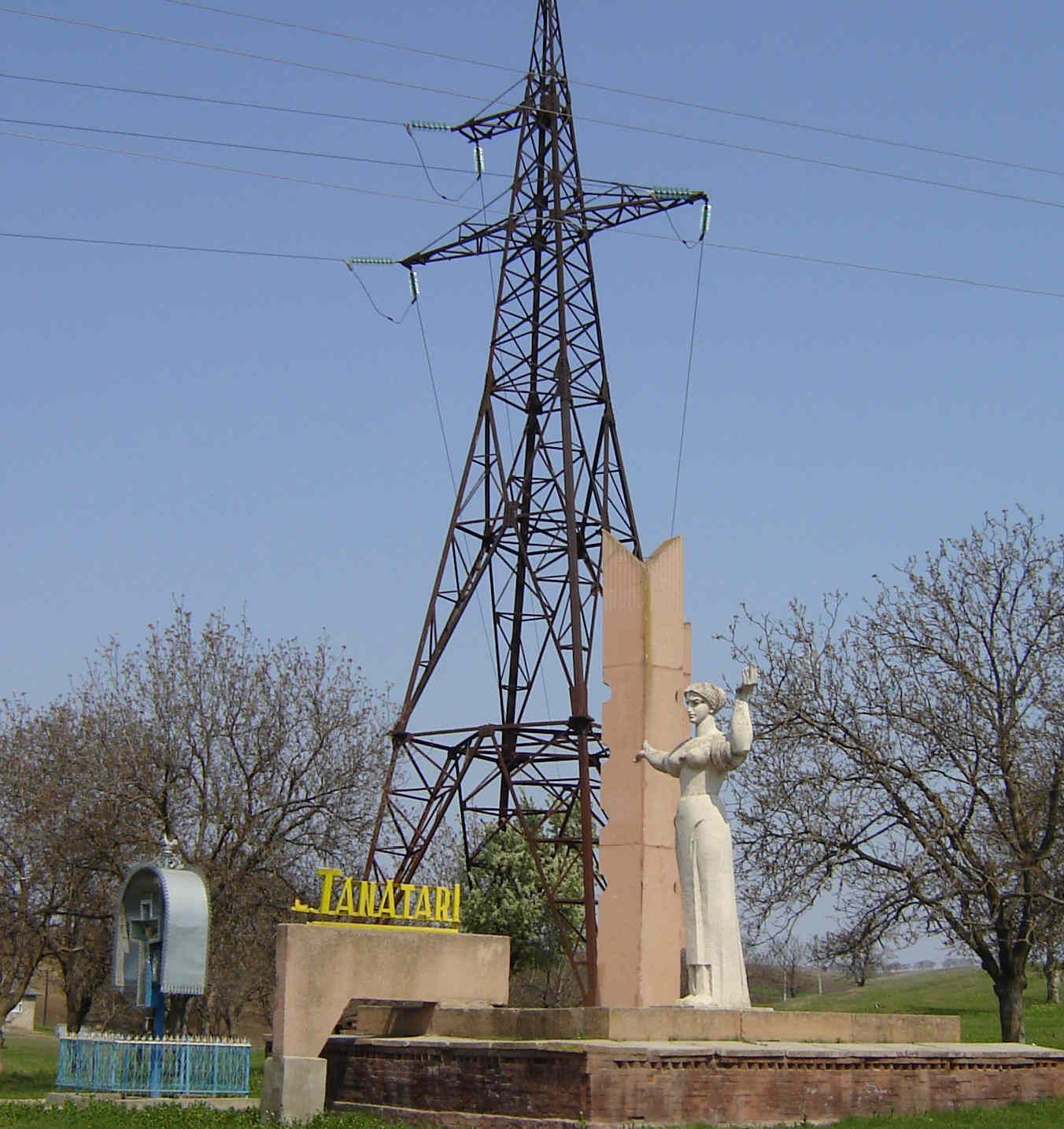 Statue and
sign welcoming traffic to Tanitari. All Soviet villages seem to
have one.
Statue and
sign welcoming traffic to Tanitari. All Soviet villages seem to
have one.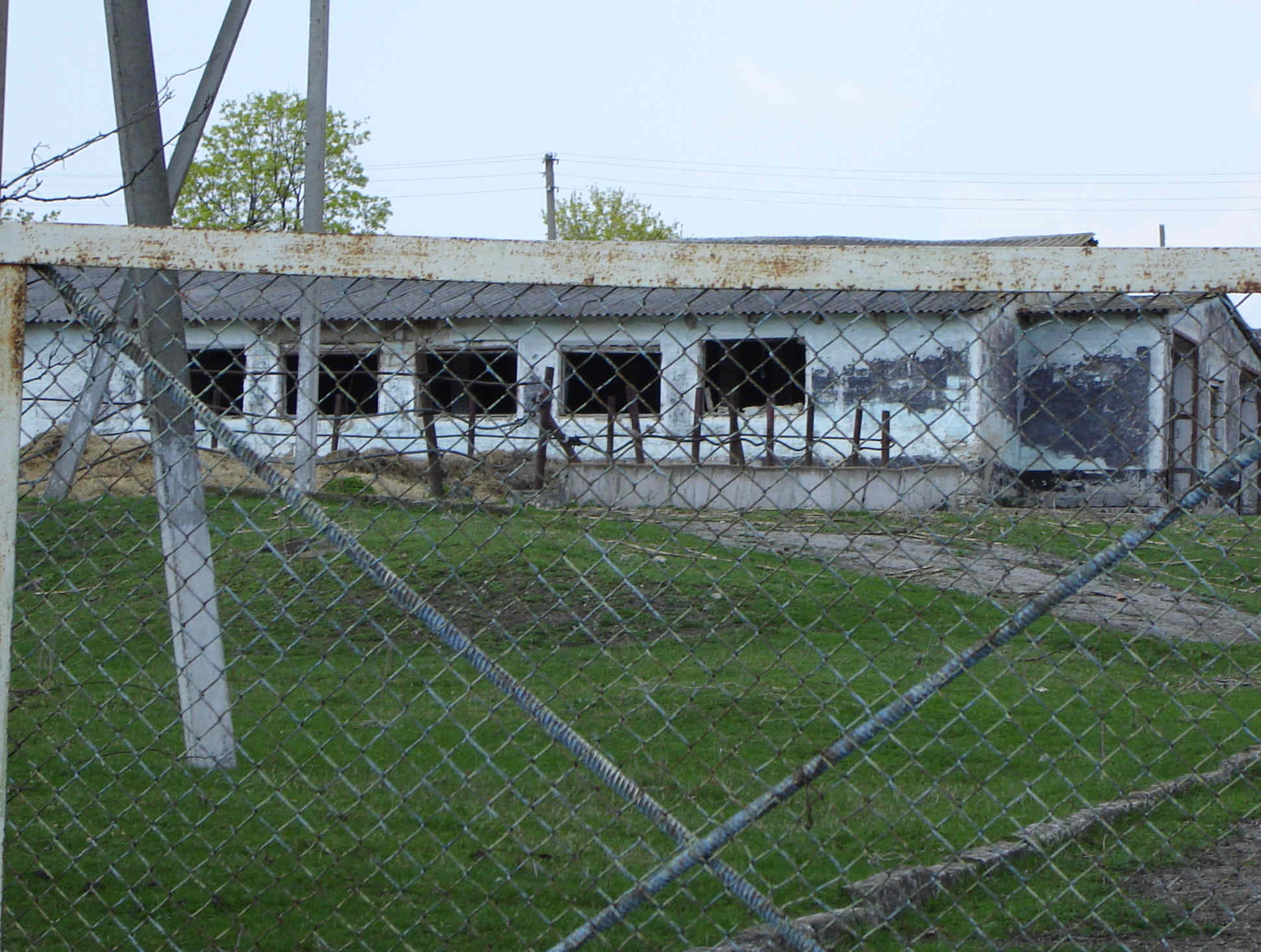 One of hundreds of abandoned collective farms that dot the Moldovan
countryside. Most villagers used to work the collective farms
under the Soviets
One of hundreds of abandoned collective farms that dot the Moldovan
countryside. Most villagers used to work the collective farms
under the Soviets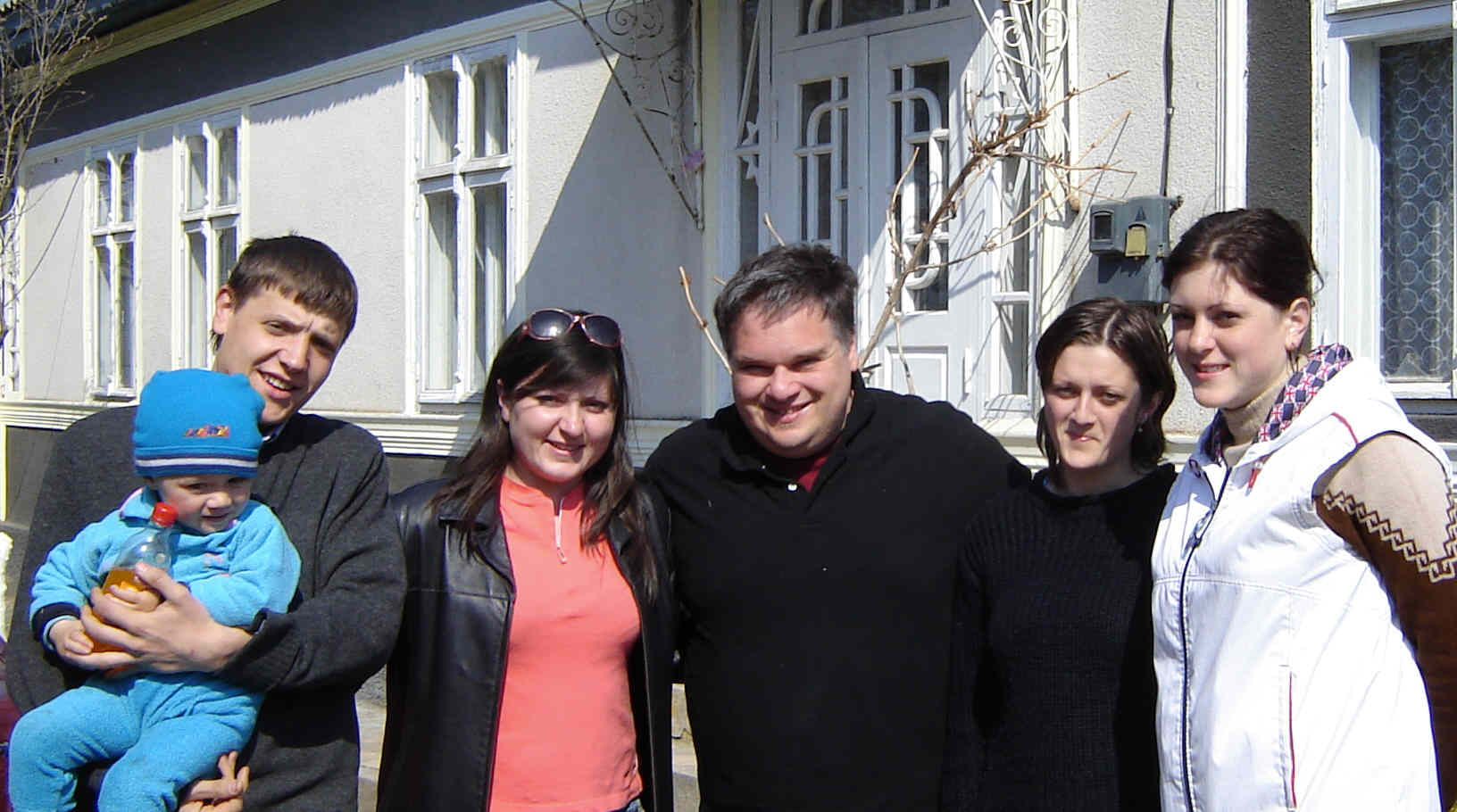 Vicu (with
Silvia's nephew), Silvia, me, Silvia's sister-in-law, and sister.
Silvia's parents had already gone to work--her Dad drives a
bus--sometimes as many as 12 hours a day and her Mom teaches English at
two schools. Silvia is a dynamo full of positive energy and grace--a
worthy ambassador of Moldova, which one day I hope she will be.
Vicu (with
Silvia's nephew), Silvia, me, Silvia's sister-in-law, and sister.
Silvia's parents had already gone to work--her Dad drives a
bus--sometimes as many as 12 hours a day and her Mom teaches English at
two schools. Silvia is a dynamo full of positive energy and grace--a
worthy ambassador of Moldova, which one day I hope she will be.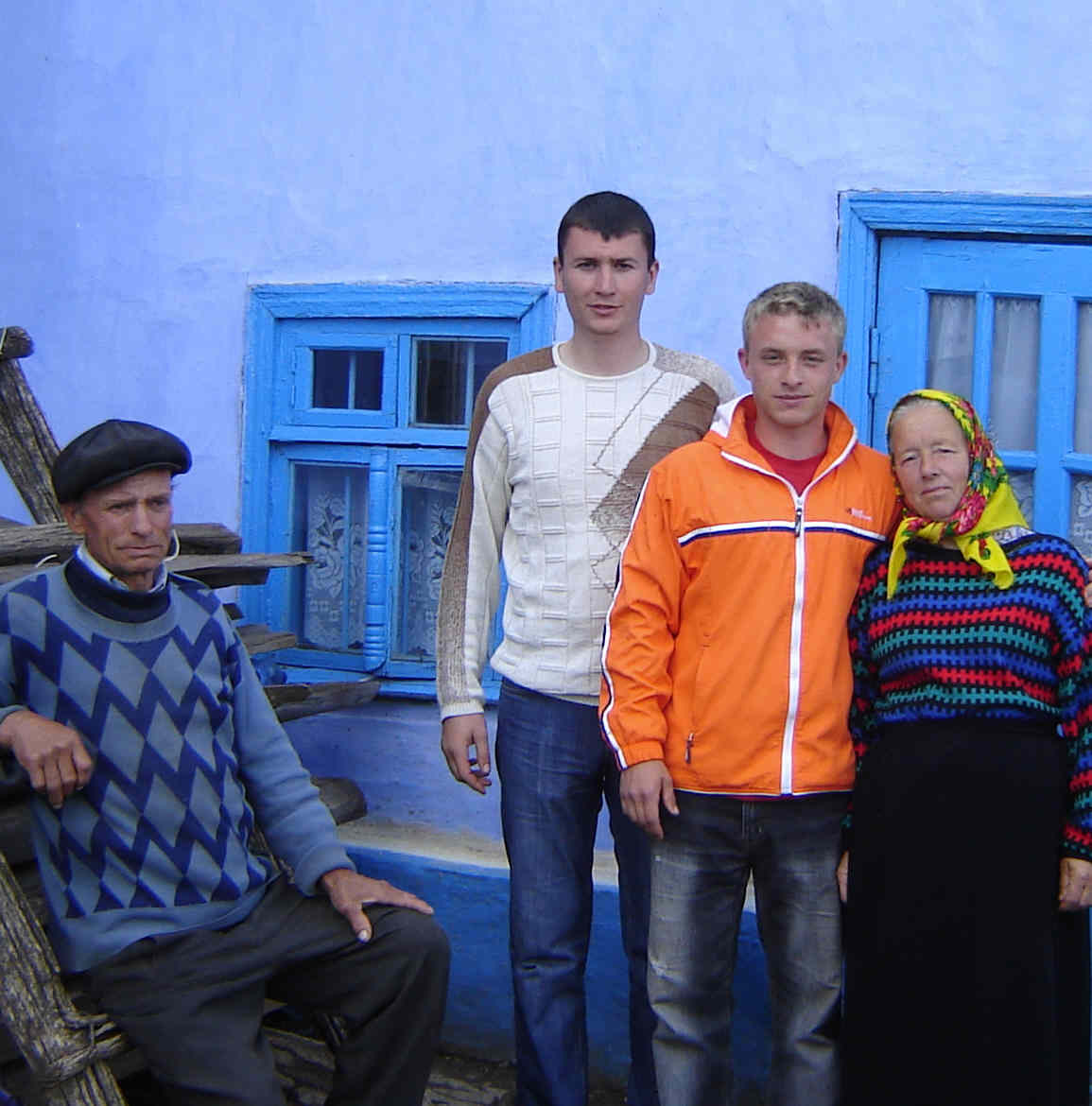 Costia (in orange) with his father, mother and friend, Sergiu.
Costia would make a great administrator--may when I come back he will be
mayor of his town.
Costia (in orange) with his father, mother and friend, Sergiu.
Costia would make a great administrator--may when I come back he will be
mayor of his town.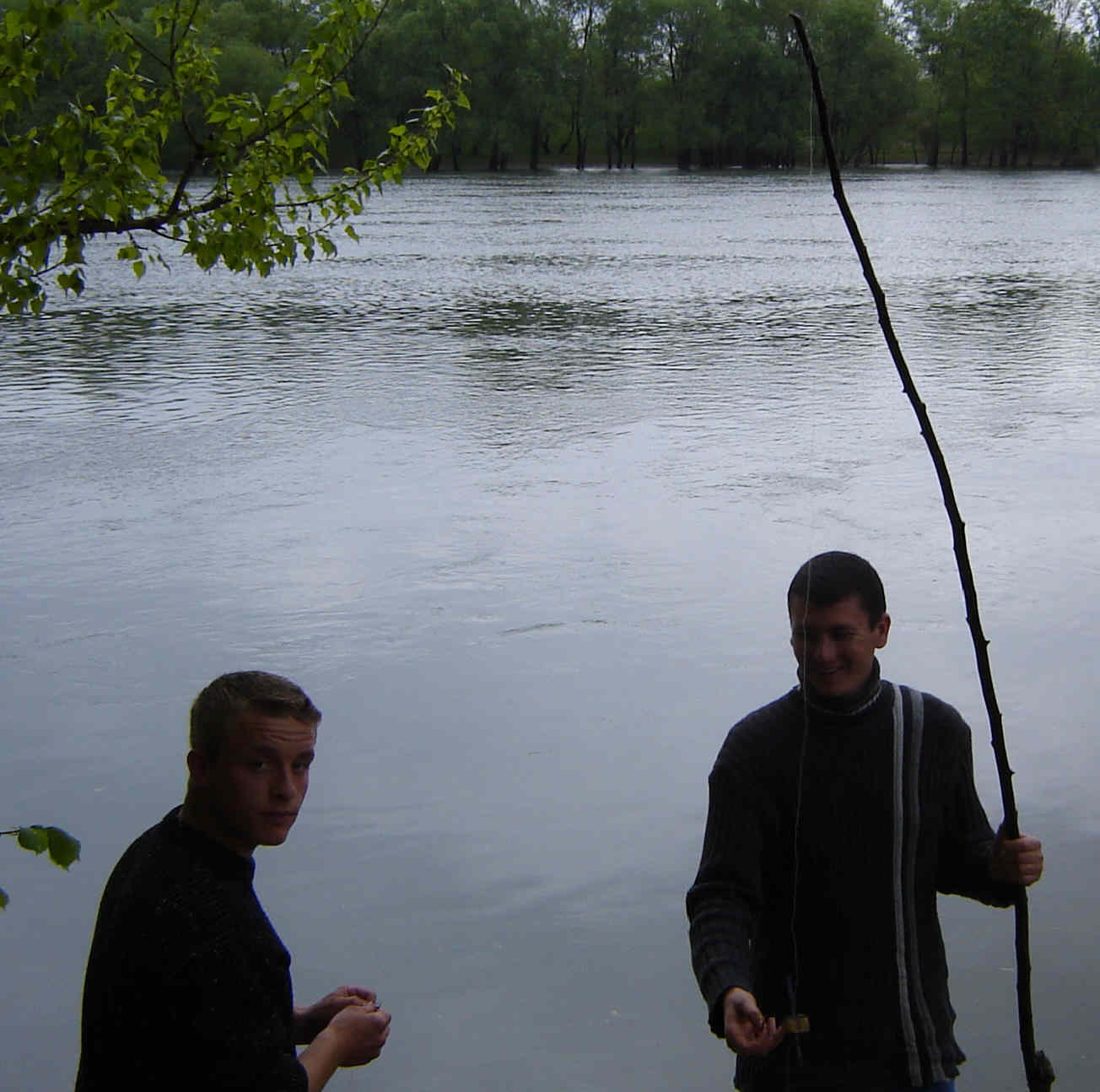 Costia and Sergiu fishing in the Dnister for something to put on the
SHA-SH-LICK (grill in Russian)
Costia and Sergiu fishing in the Dnister for something to put on the
SHA-SH-LICK (grill in Russian)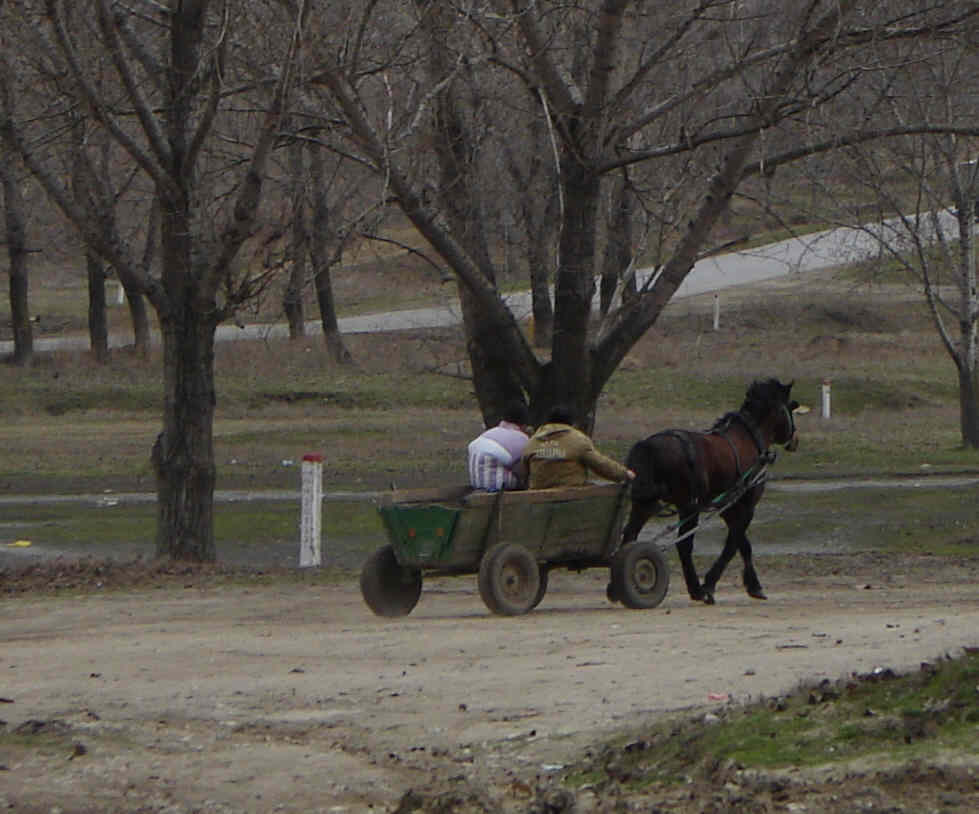 Typical sight in a village--sometimes it is a car that seems out of
place. Often on Sundays, you can see whole families traveling by cart to visit
relatives
Typical sight in a village--sometimes it is a car that seems out of
place. Often on Sundays, you can see whole families traveling by cart to visit
relatives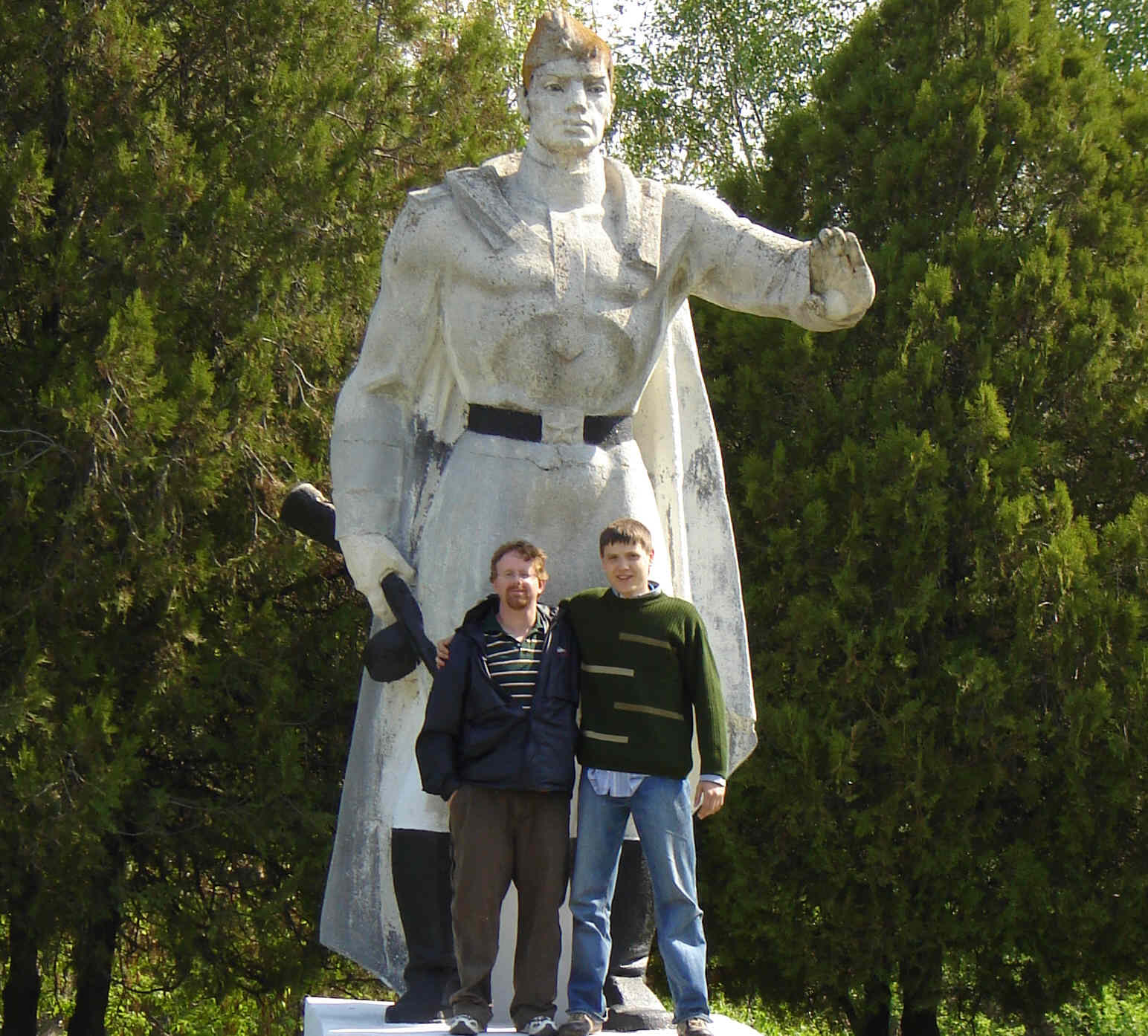 A World War II memorial--every village has one to commemorate the many
Soviet soldiers lost in the war for liberation, here.
A World War II memorial--every village has one to commemorate the many
Soviet soldiers lost in the war for liberation, here.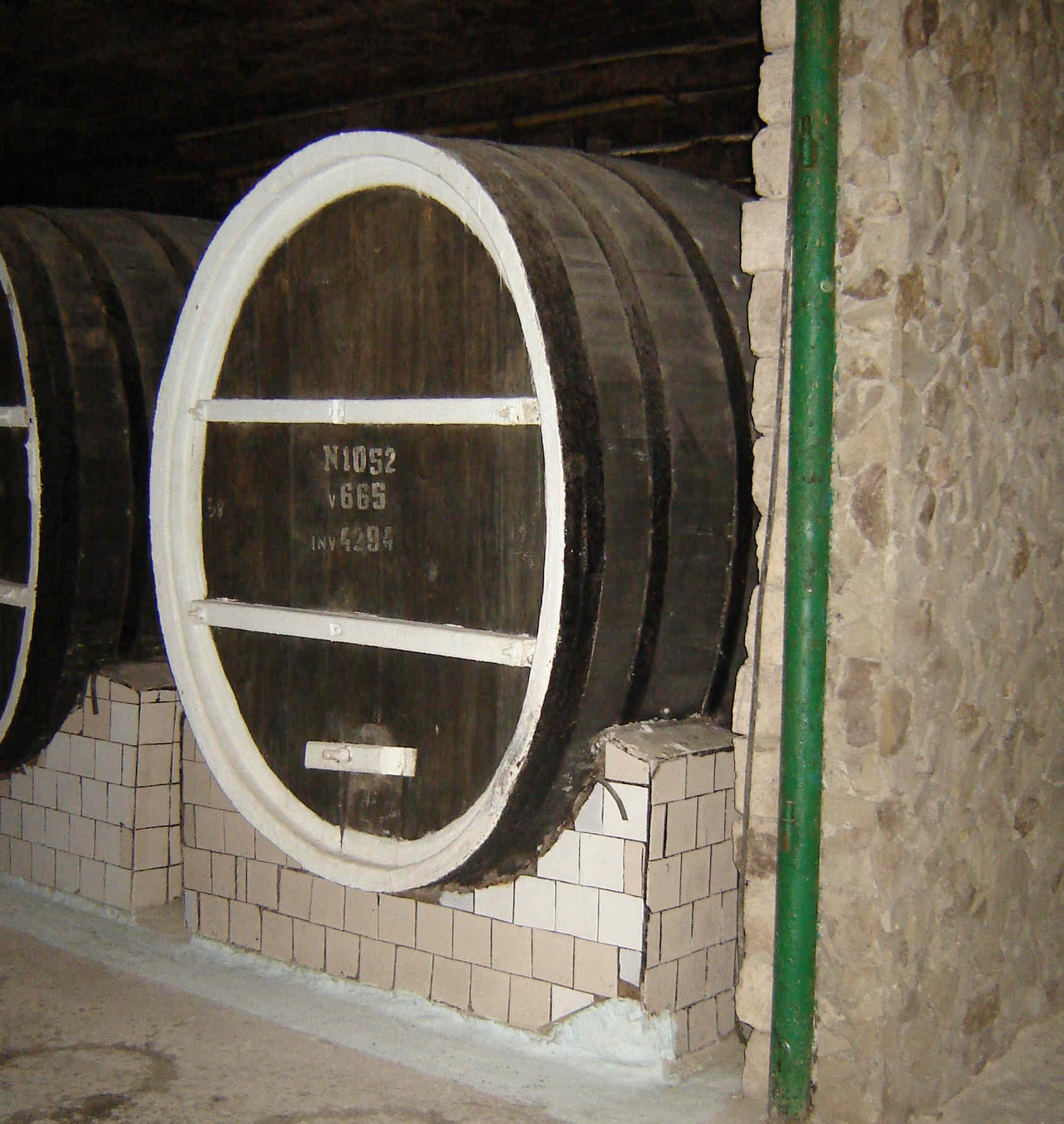 Wine casks like this one are used to age Moldovan wine at Milesti Mici--the
largest wine cellar in the world!
Wine casks like this one are used to age Moldovan wine at Milesti Mici--the
largest wine cellar in the world!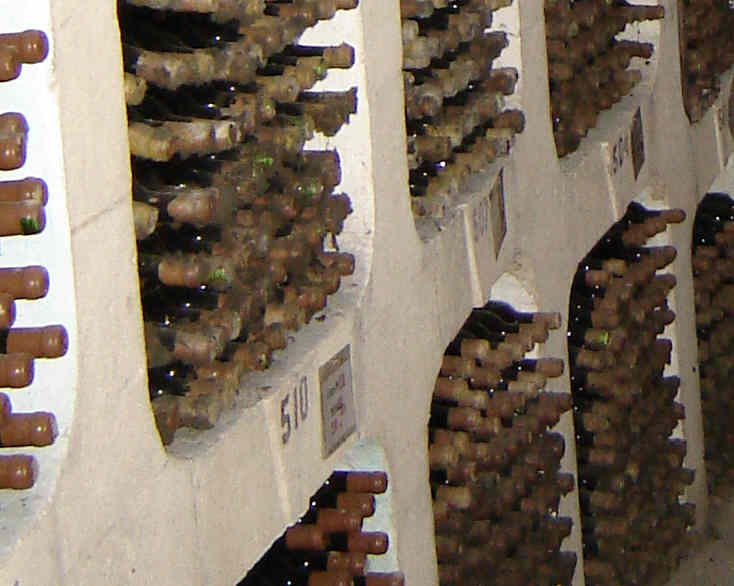 Sticlas (bottles) aging in the vault.
Sticlas (bottles) aging in the vault.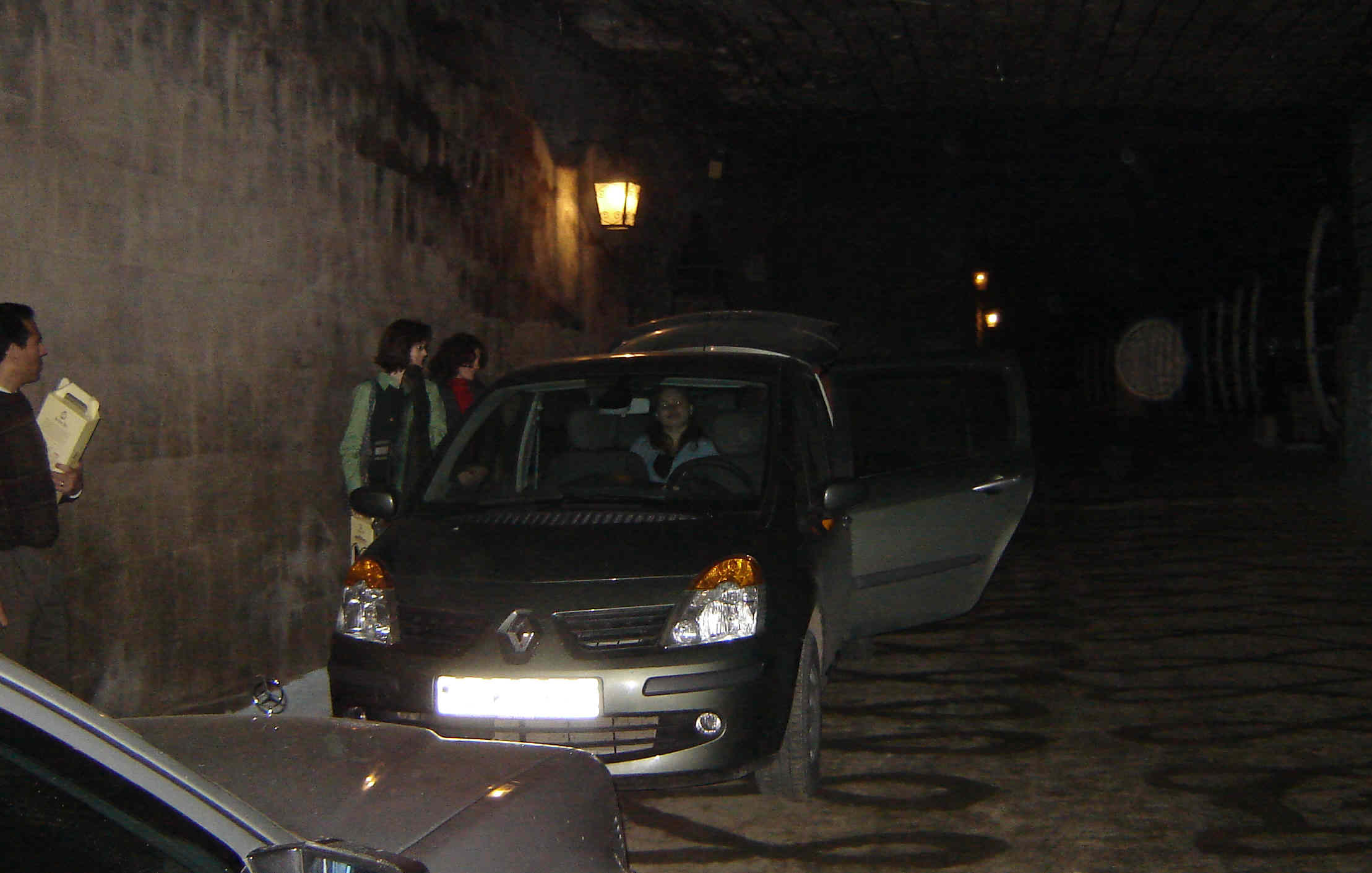 Cars drive in the underground wine
city.
Cars drive in the underground wine
city.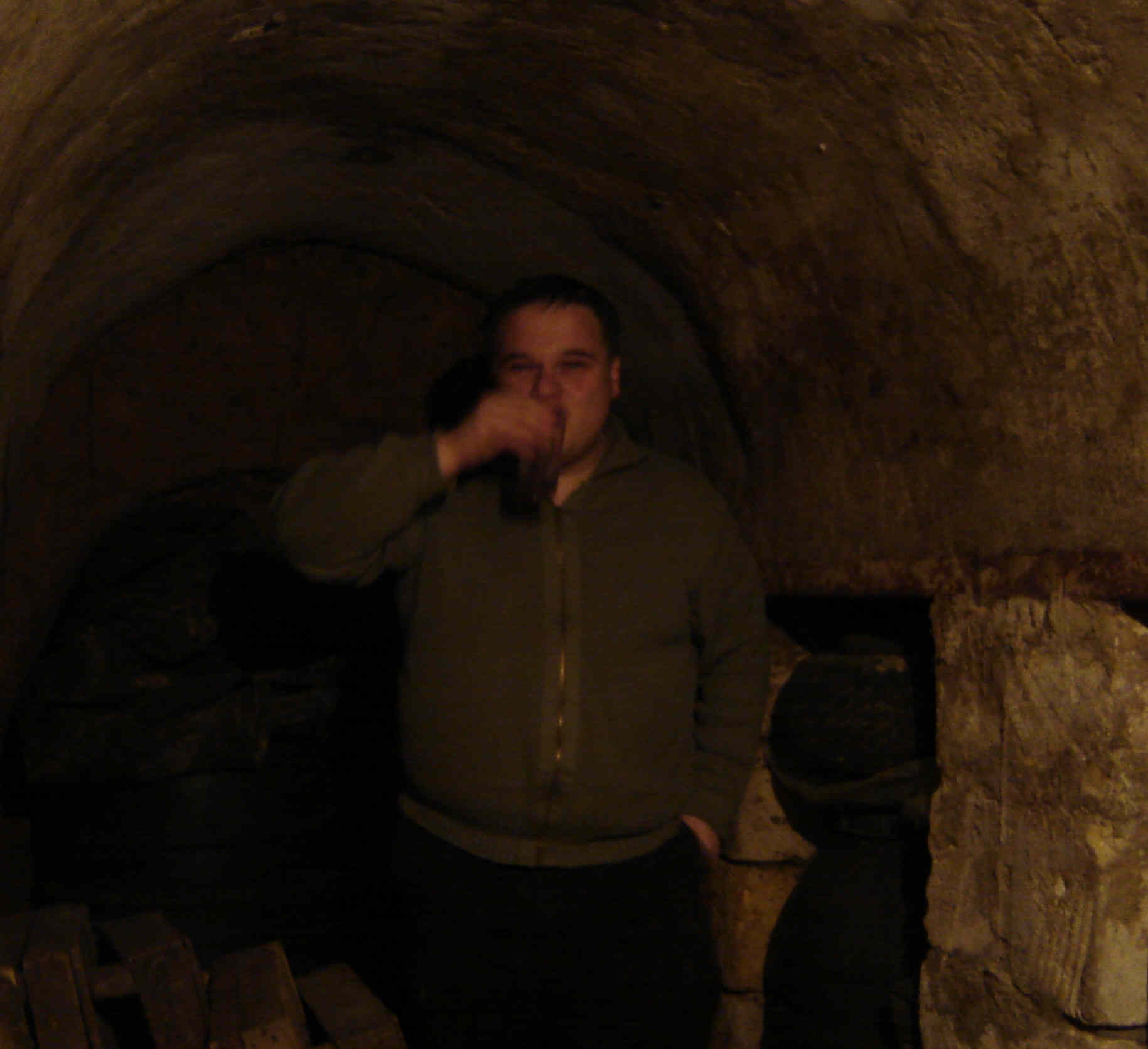 Yours truly on a visit to a traditional Moldovan basement wine cellar.
Yours truly on a visit to a traditional Moldovan basement wine cellar.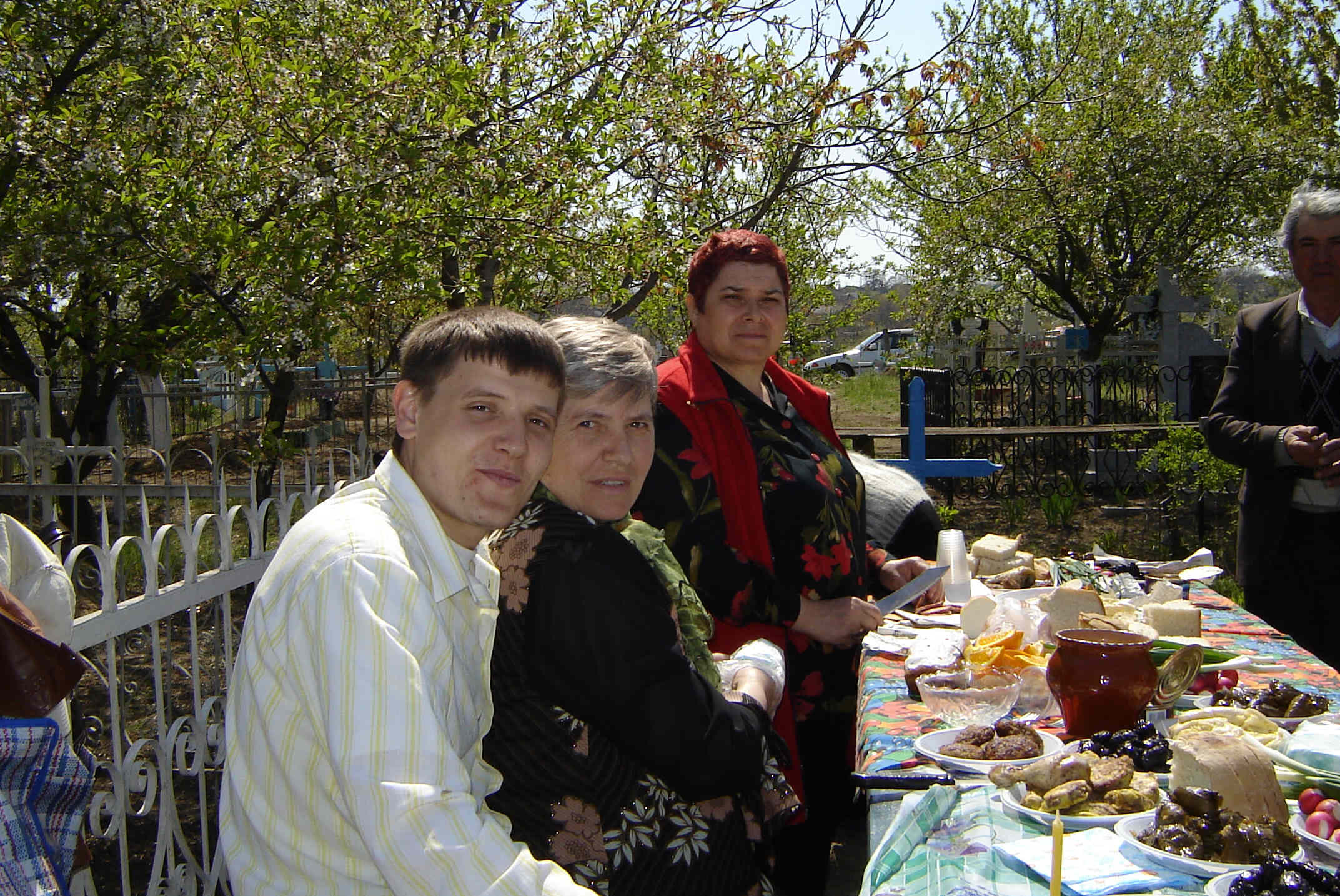 Picnic lunch in the cemetery with my
student, Vicu and his family.
Picnic lunch in the cemetery with my
student, Vicu and his family.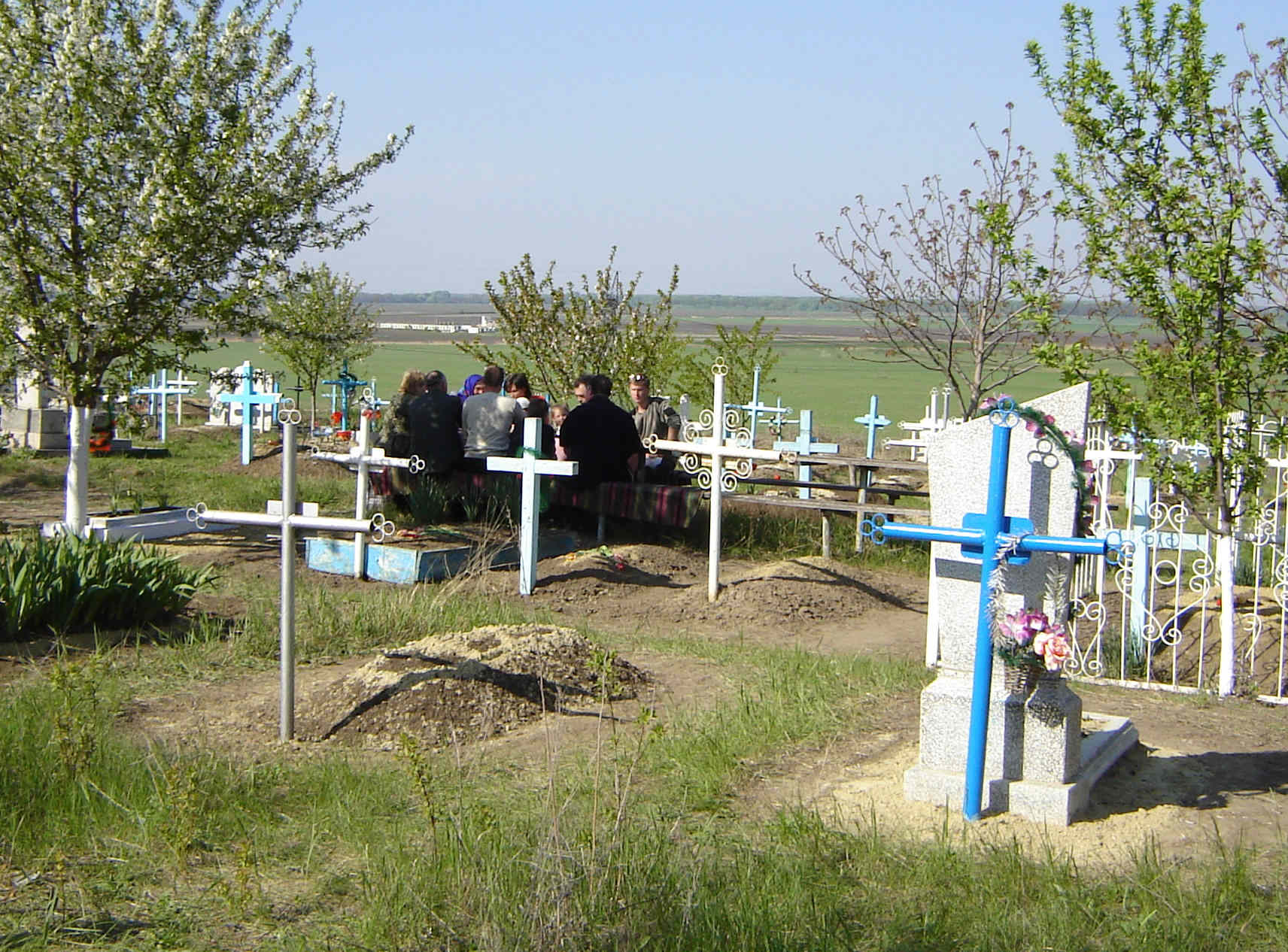 Typical Moldovan cemetery.
Typical Moldovan cemetery.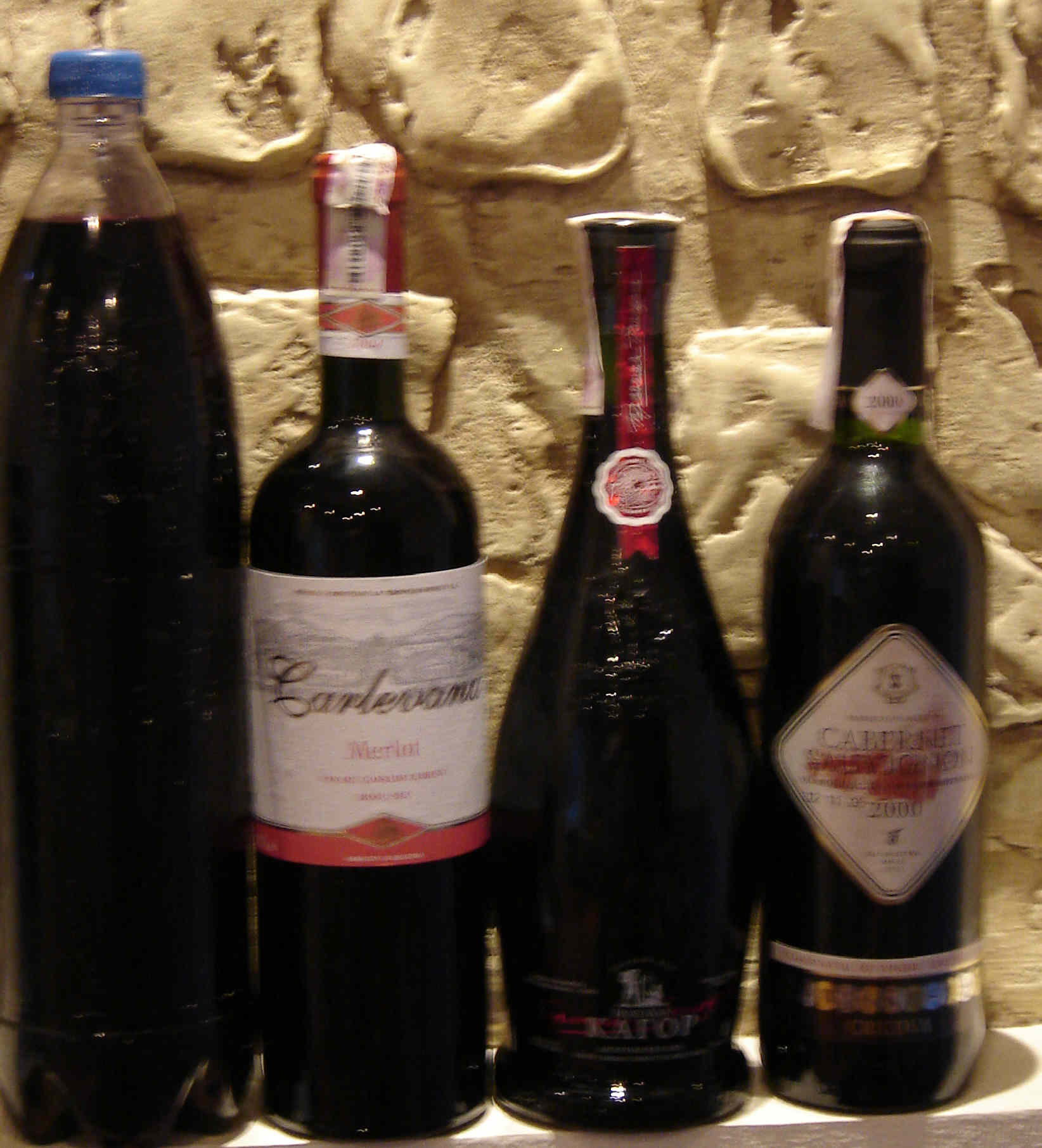 My very
own collection (from left to right): a bottle of home brewed stuff,
Merlot, a sweet dessert wine called Cahor, and Cabernet Sauvignon--much
better than that stuff that comes in a box back home. 25 U.S.
states sell Moldovan wine. Don't know what it costs but a bottle of the
good stuff goes for about $3 here.
My very
own collection (from left to right): a bottle of home brewed stuff,
Merlot, a sweet dessert wine called Cahor, and Cabernet Sauvignon--much
better than that stuff that comes in a box back home. 25 U.S.
states sell Moldovan wine. Don't know what it costs but a bottle of the
good stuff goes for about $3 here.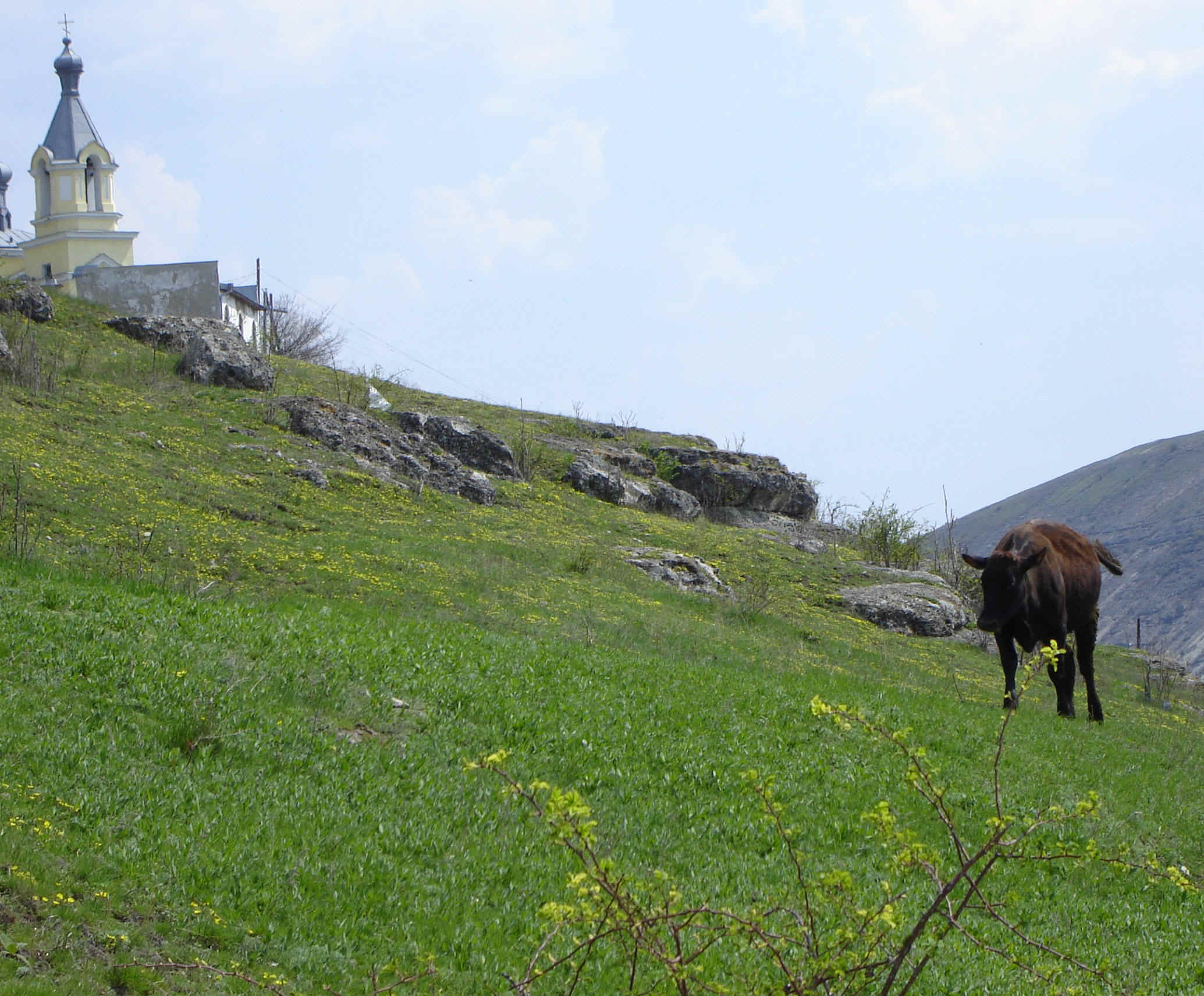 We met a
bull walking up to the entrance to the monastery.
We met a
bull walking up to the entrance to the monastery.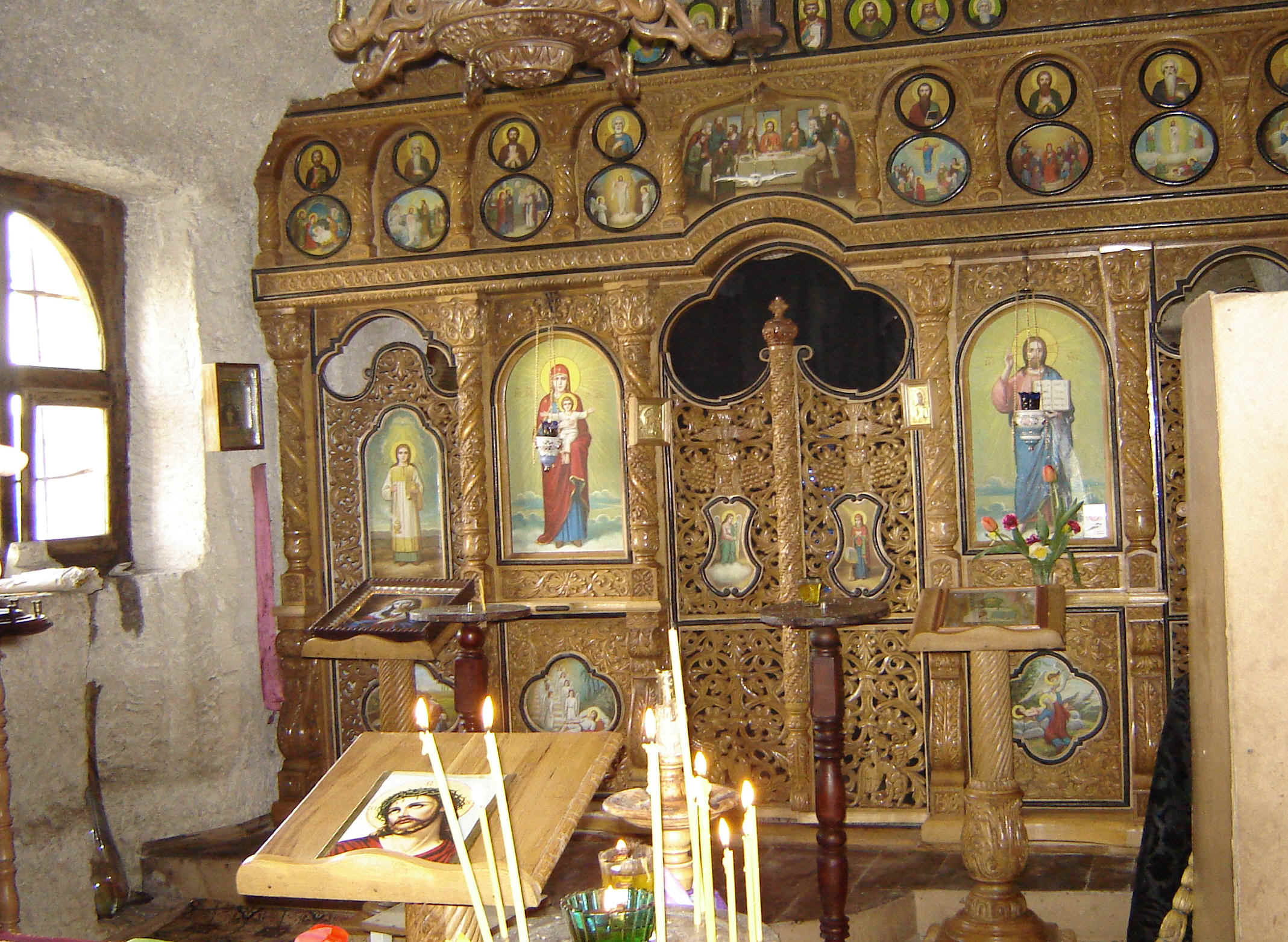 Church alter in the cave monastery.
Church alter in the cave monastery.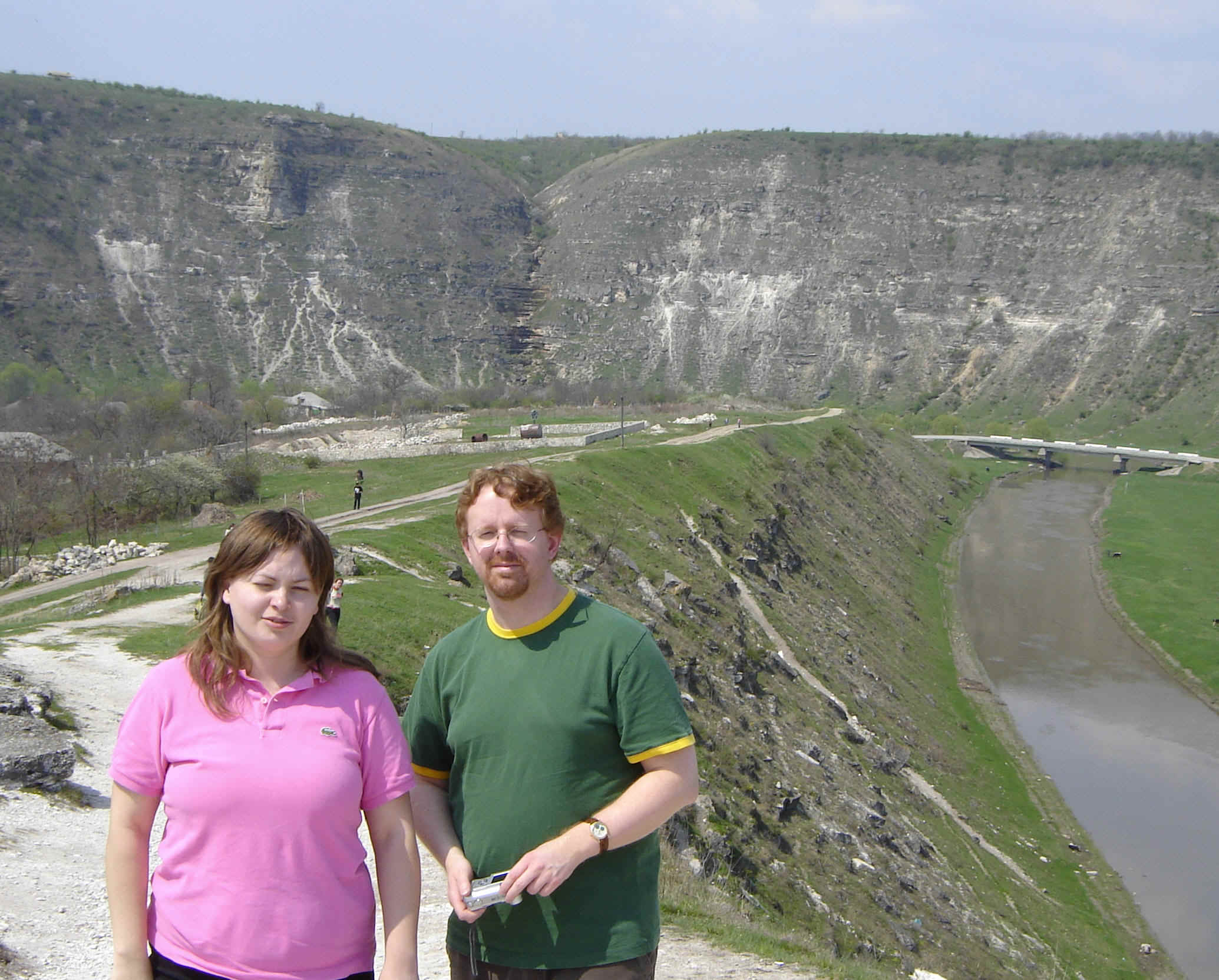 Irina and Lee stand on the ledge outside the monks' quarters.
Irina and Lee stand on the ledge outside the monks' quarters.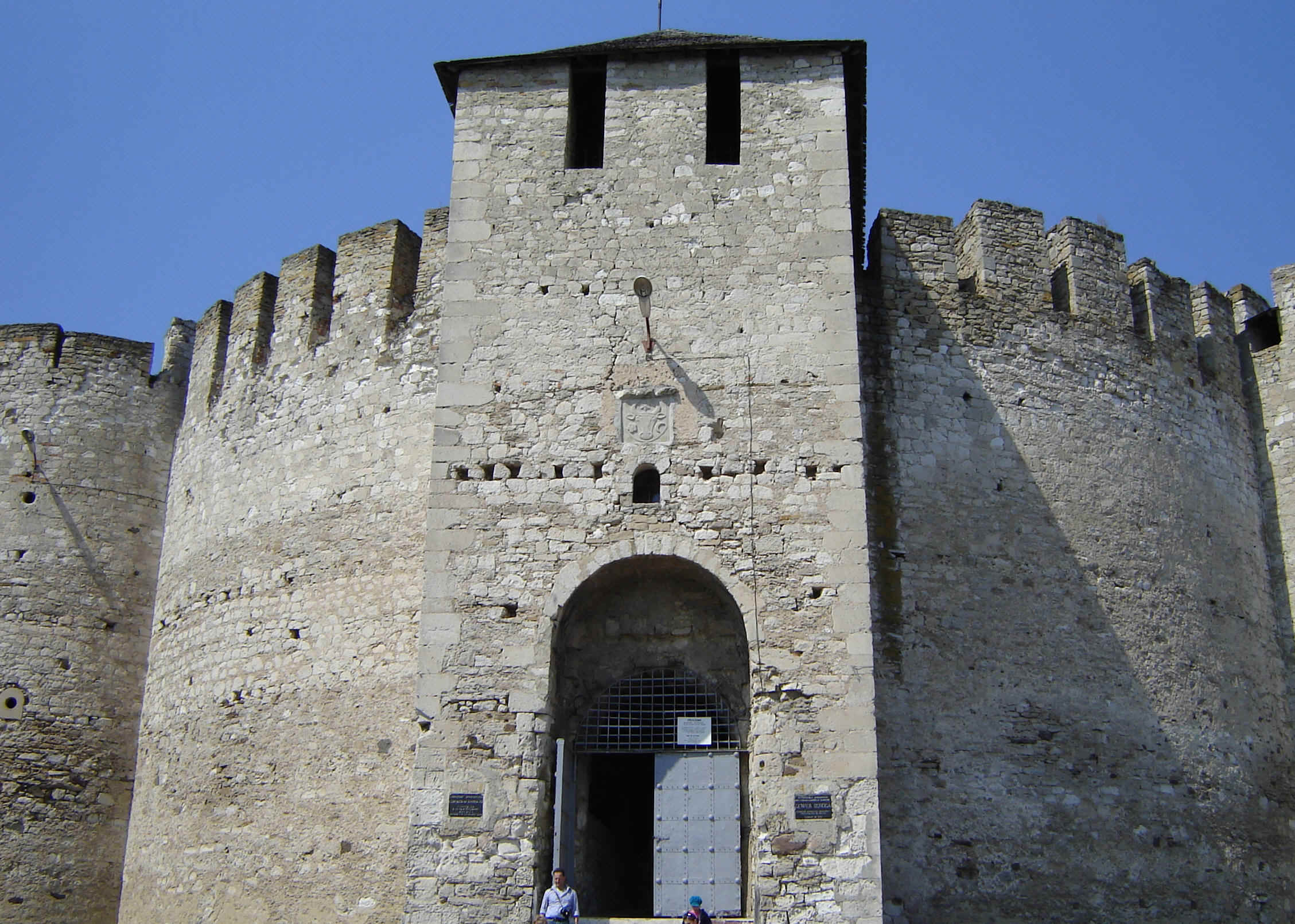 The
fortress at Soroca.
The
fortress at Soroca.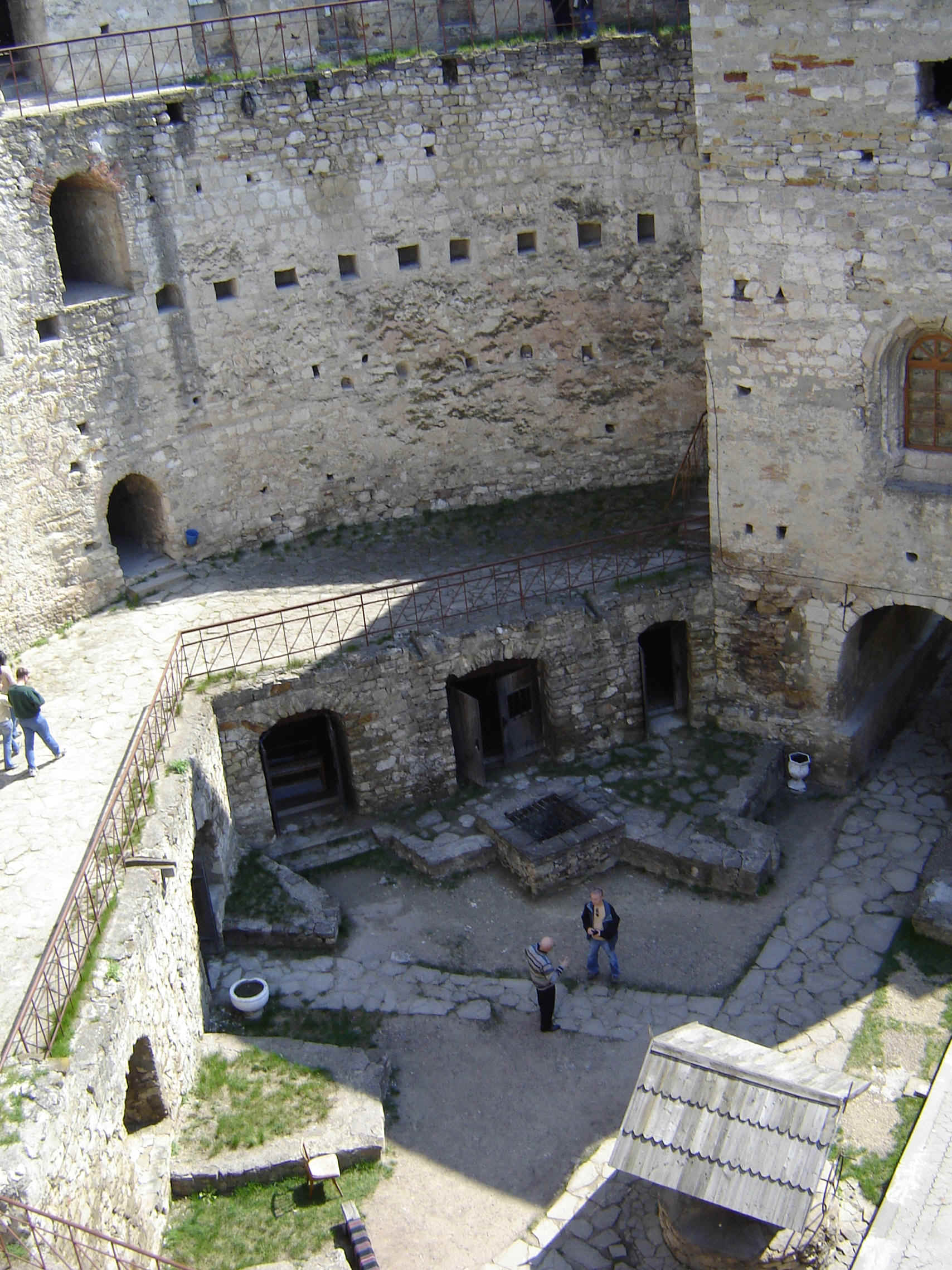 A view inside the fortress and way down at the bottom, you can see Domnu
Nicolae giving a tour
A view inside the fortress and way down at the bottom, you can see Domnu
Nicolae giving a tour